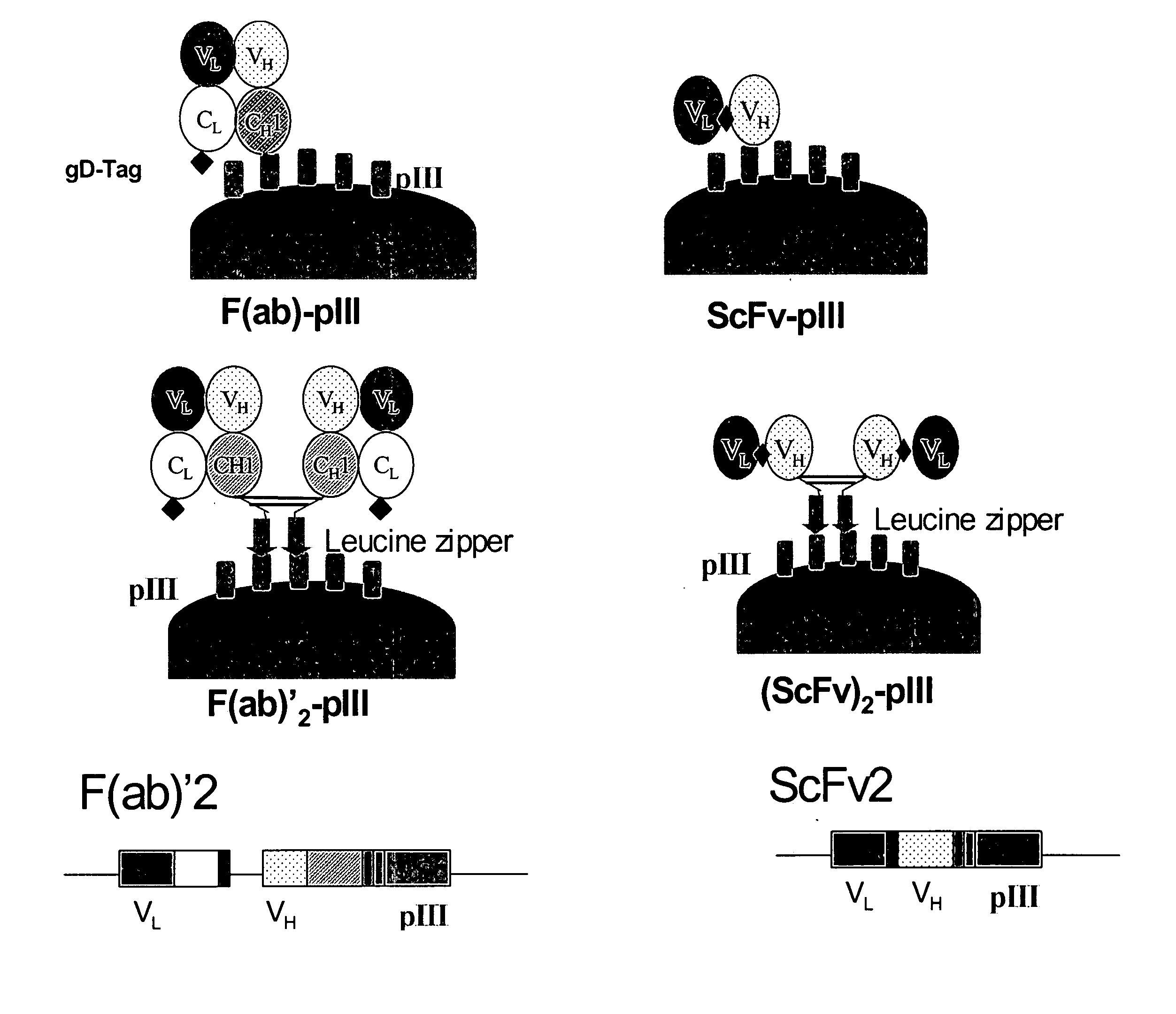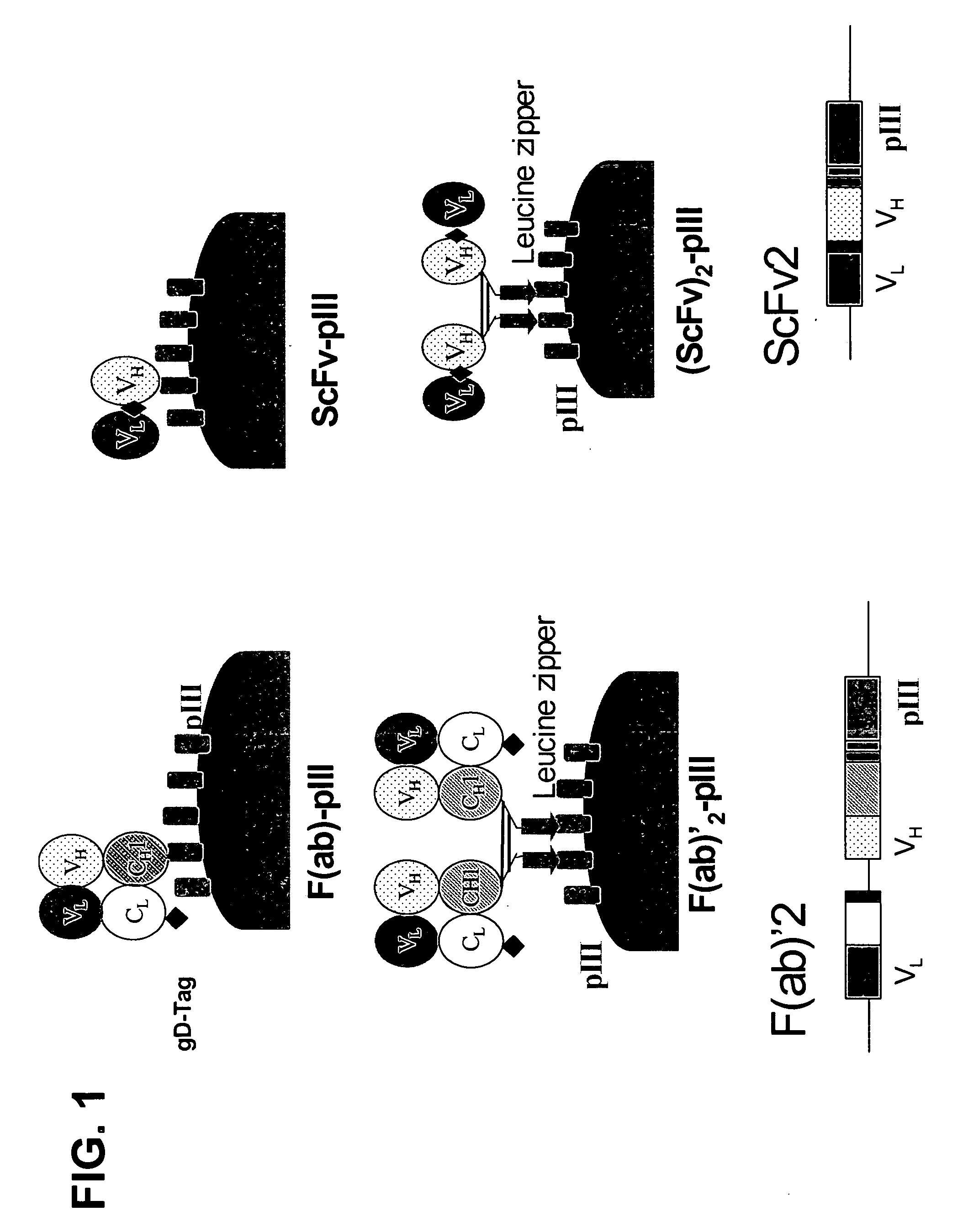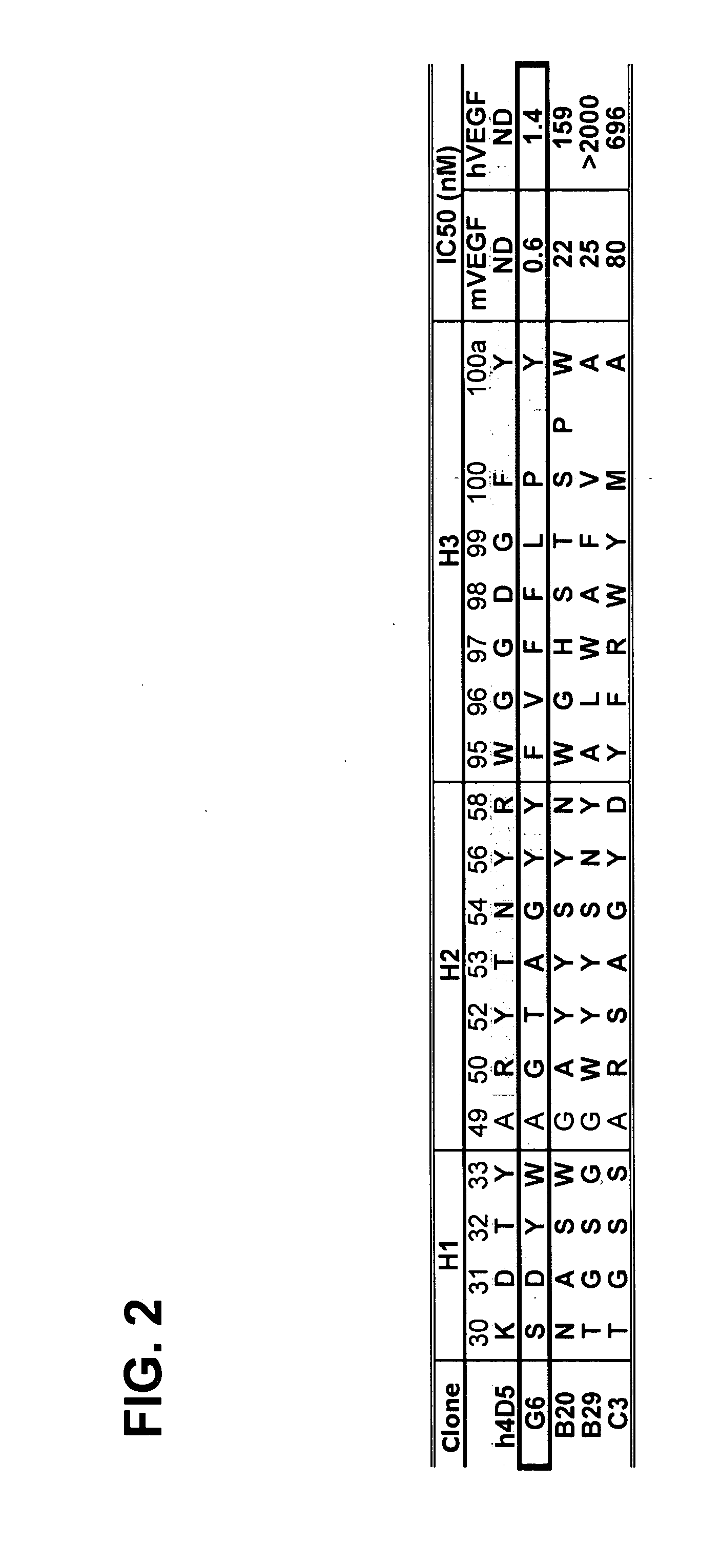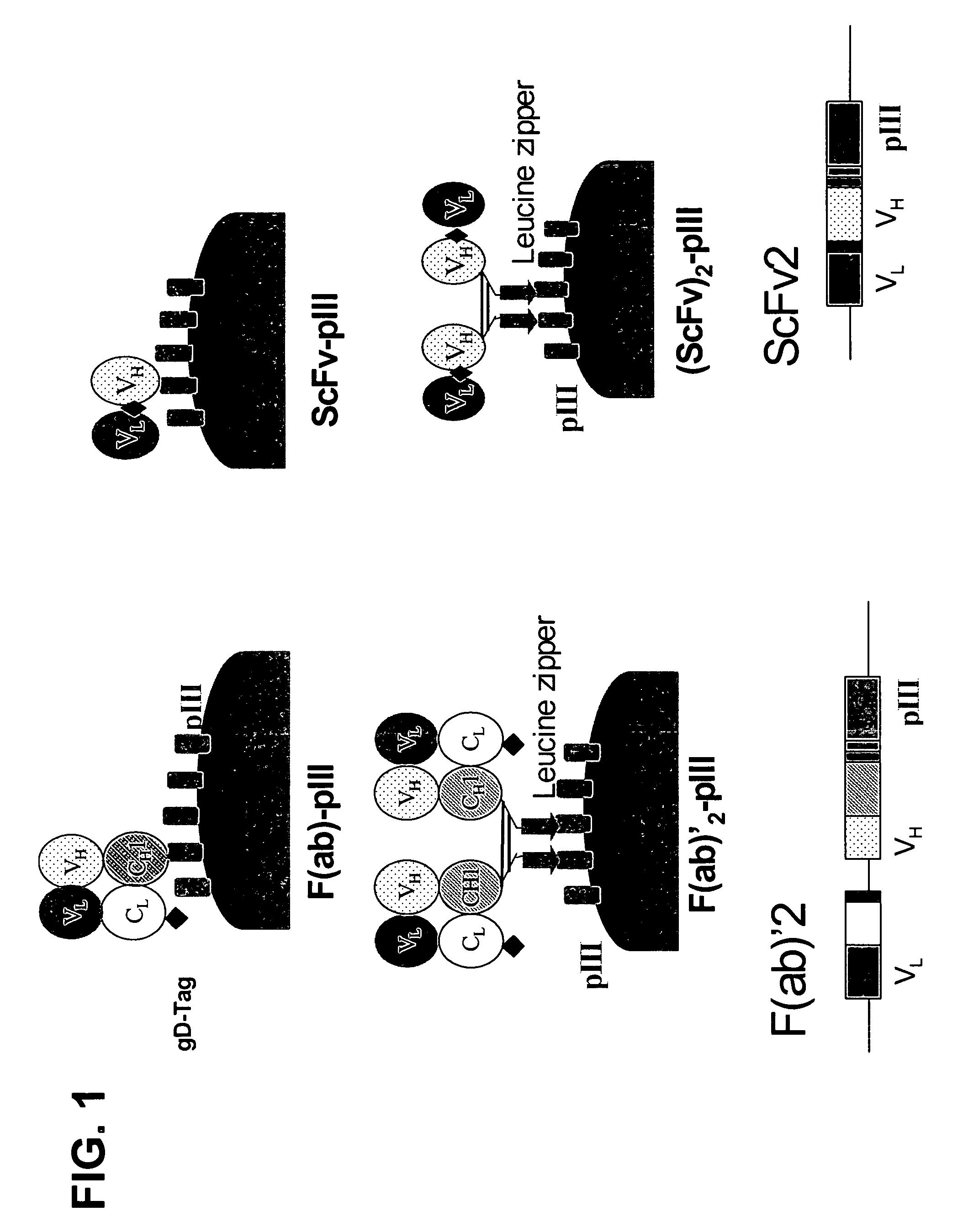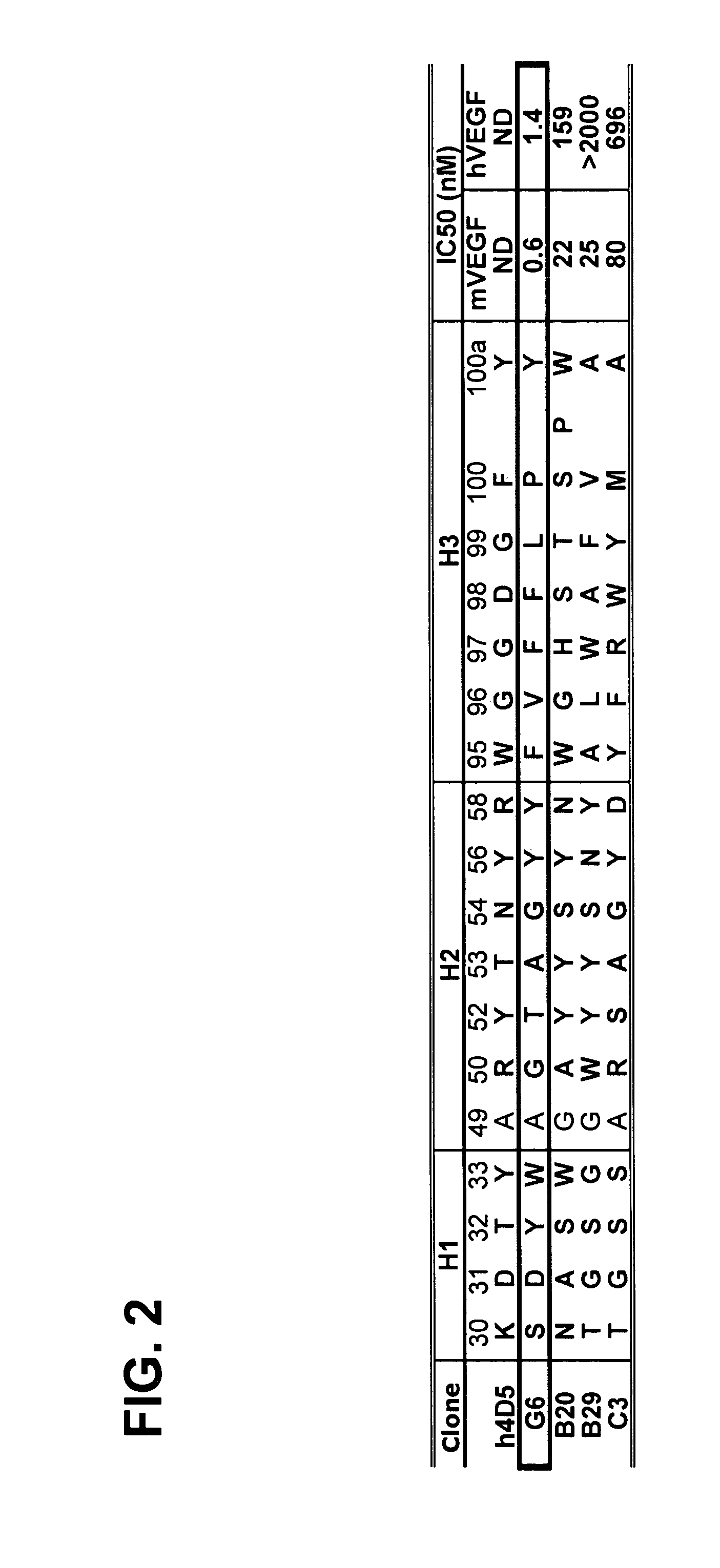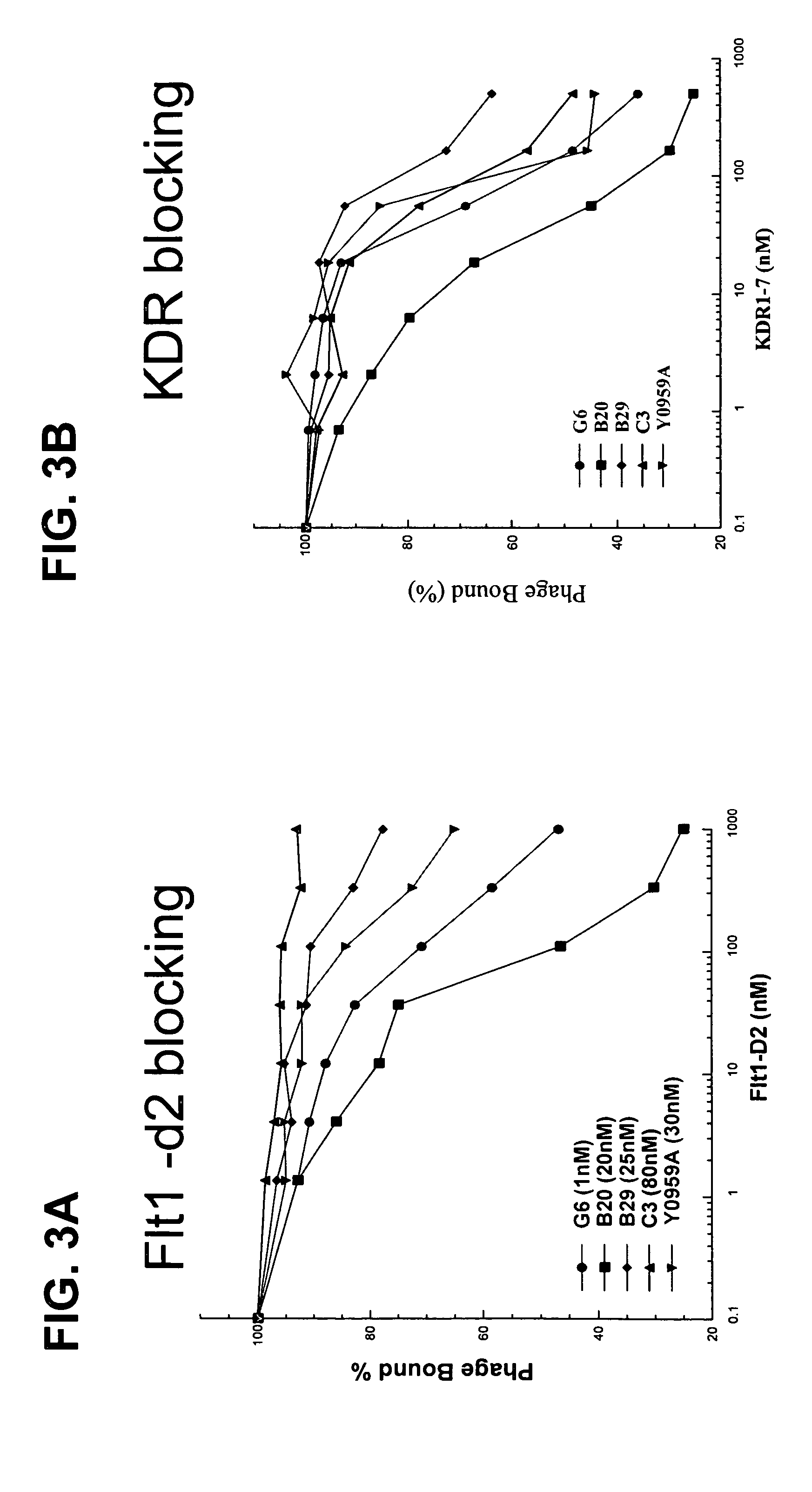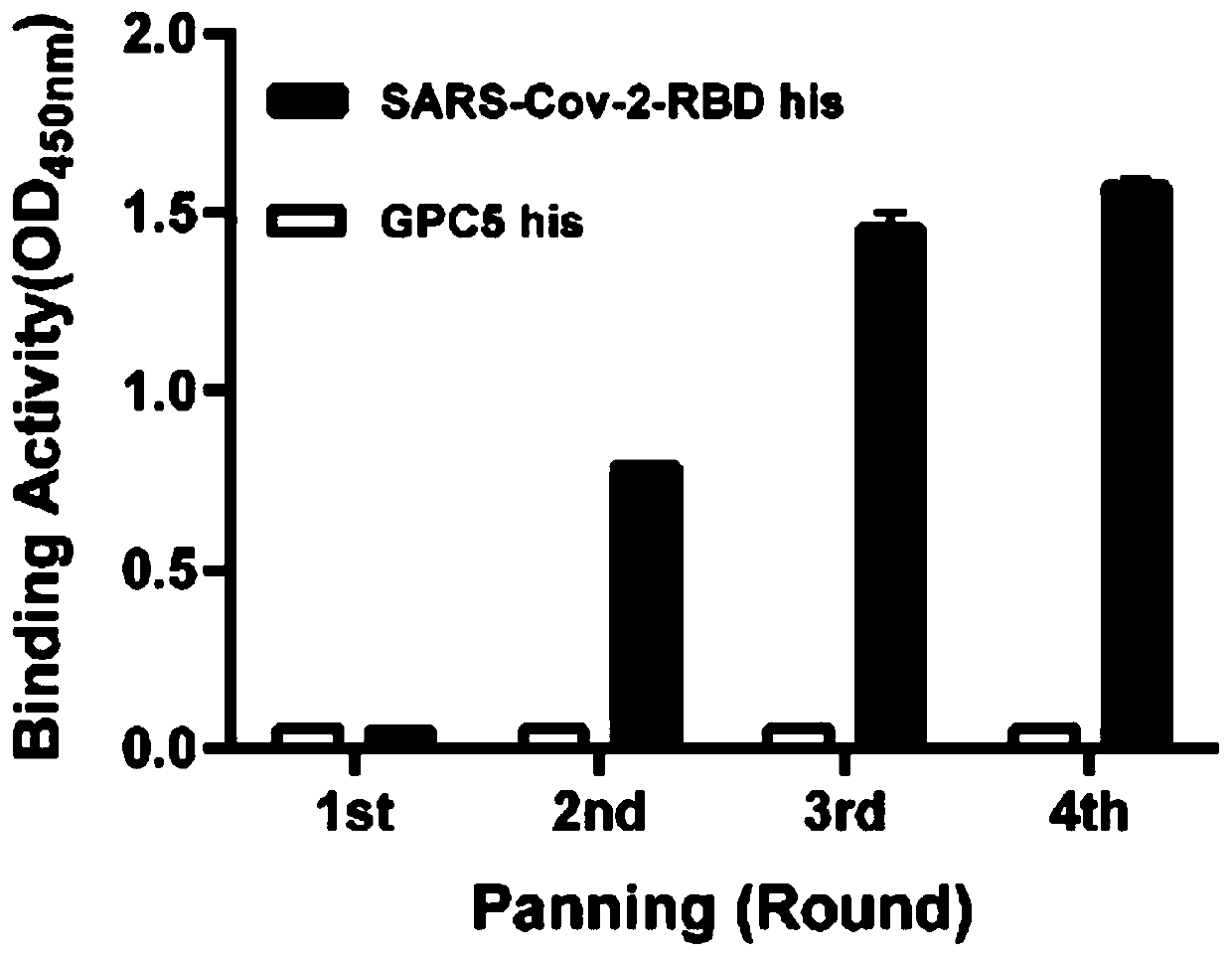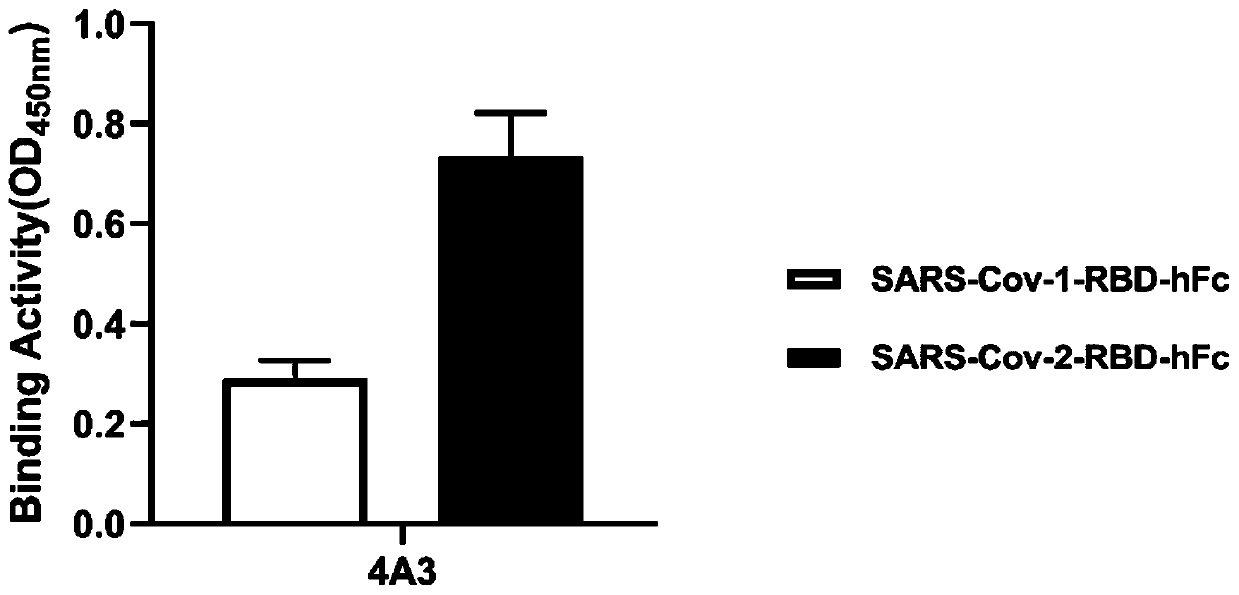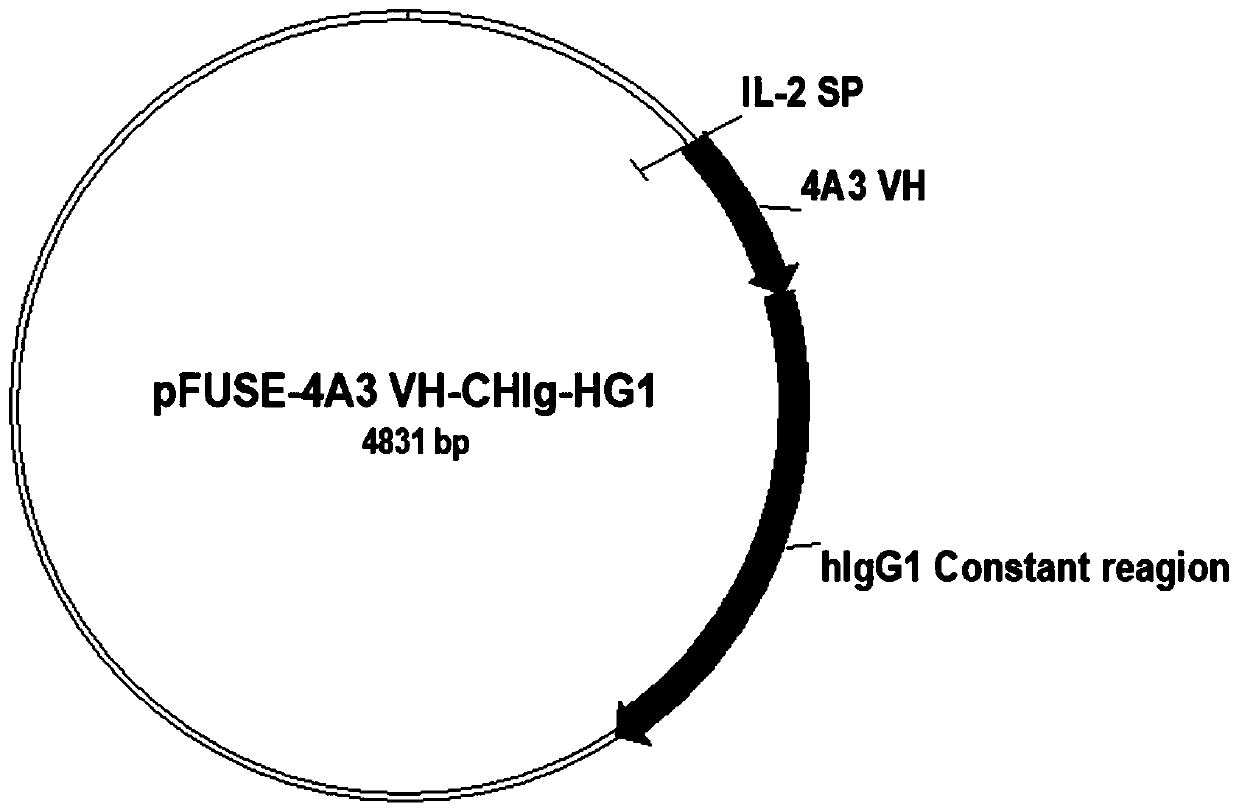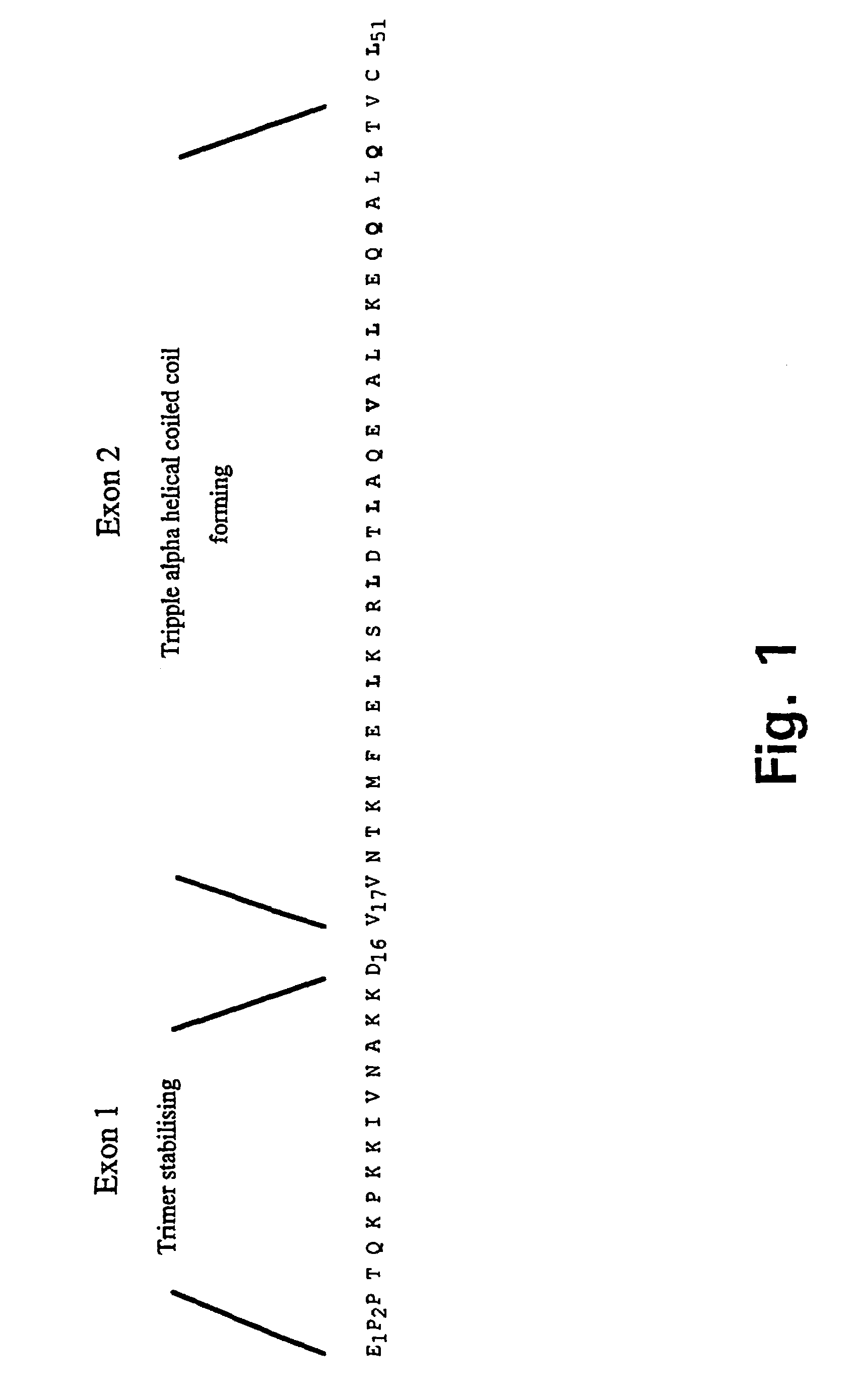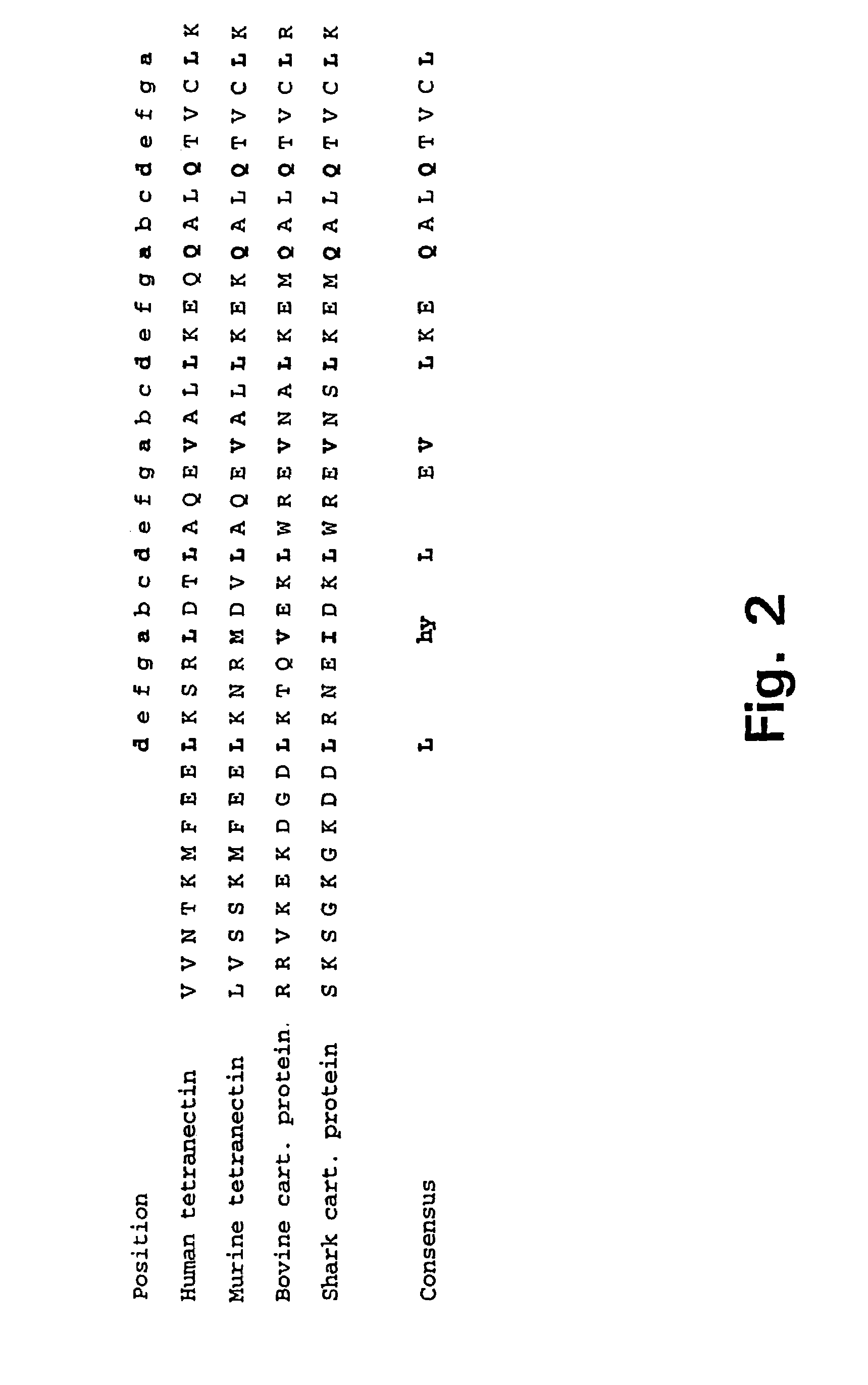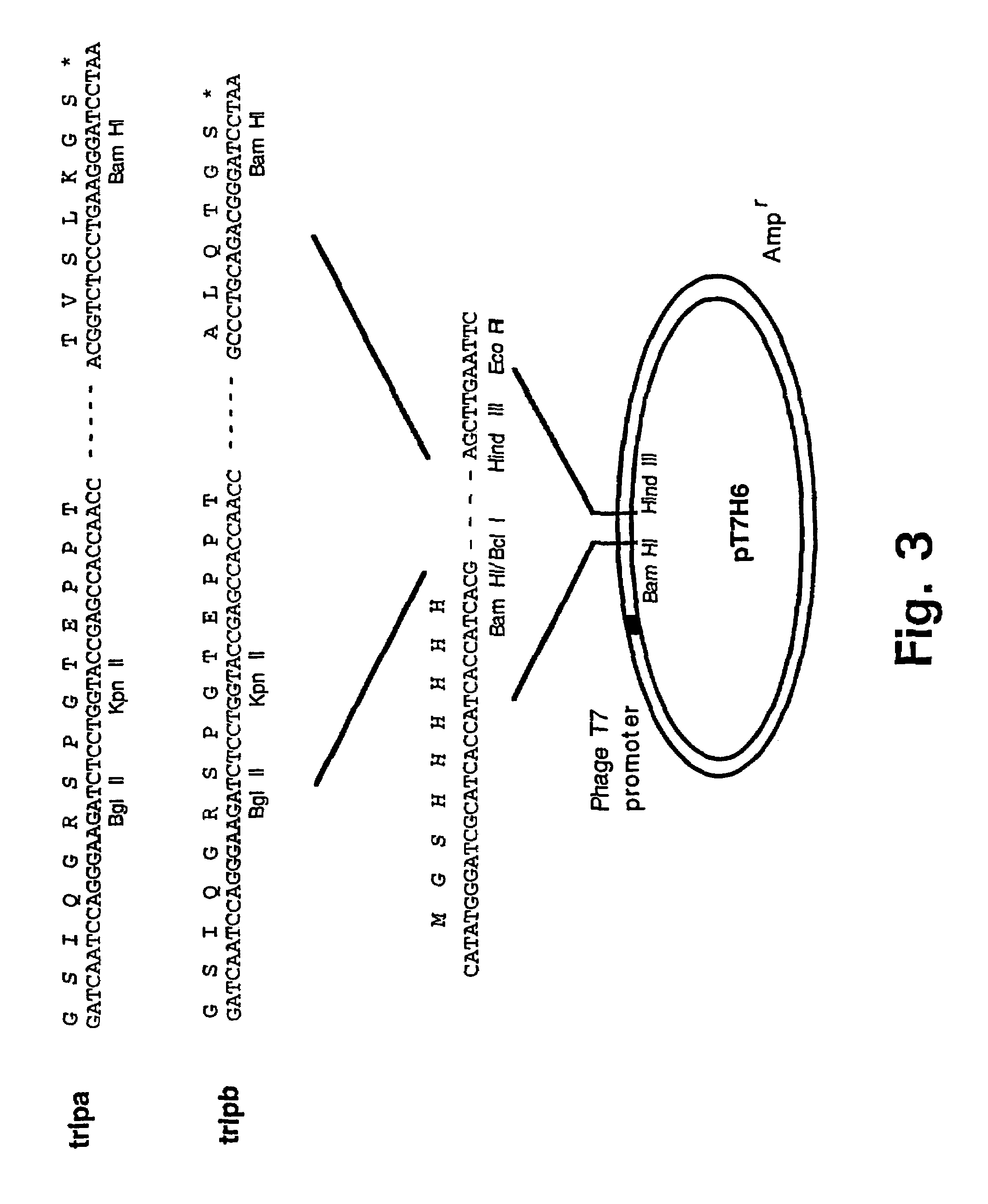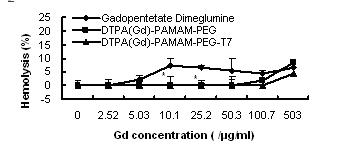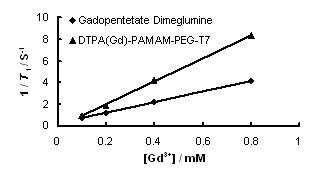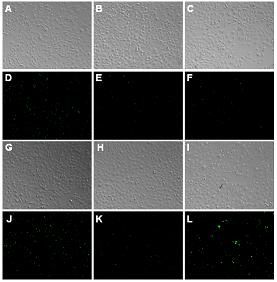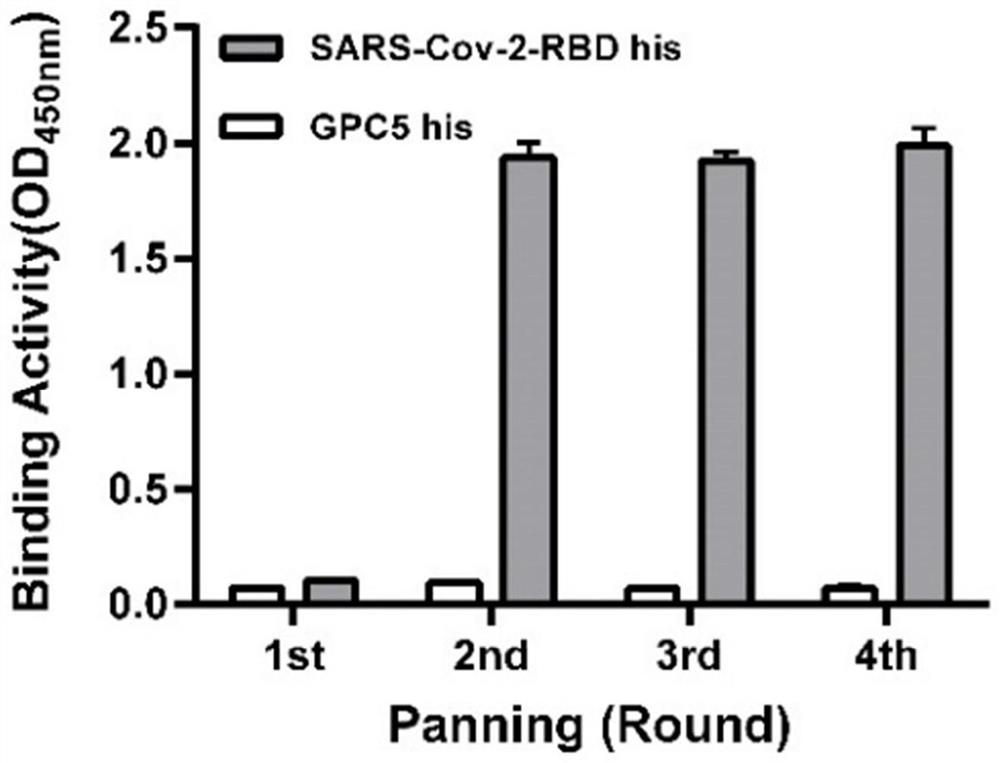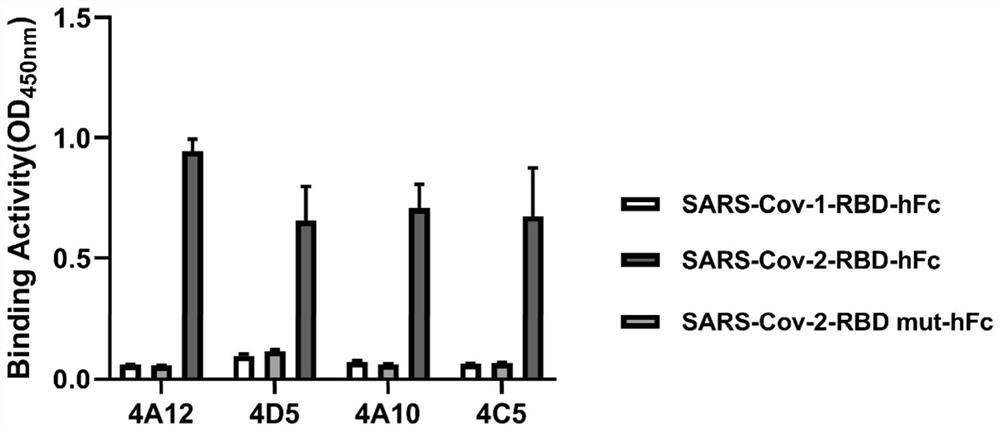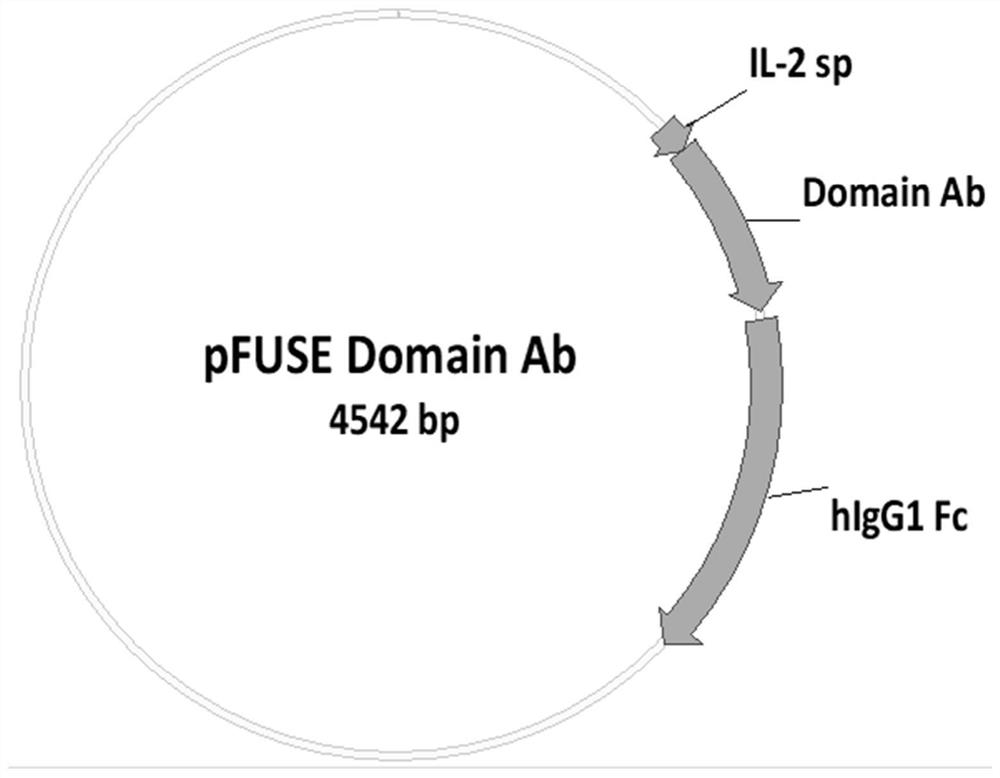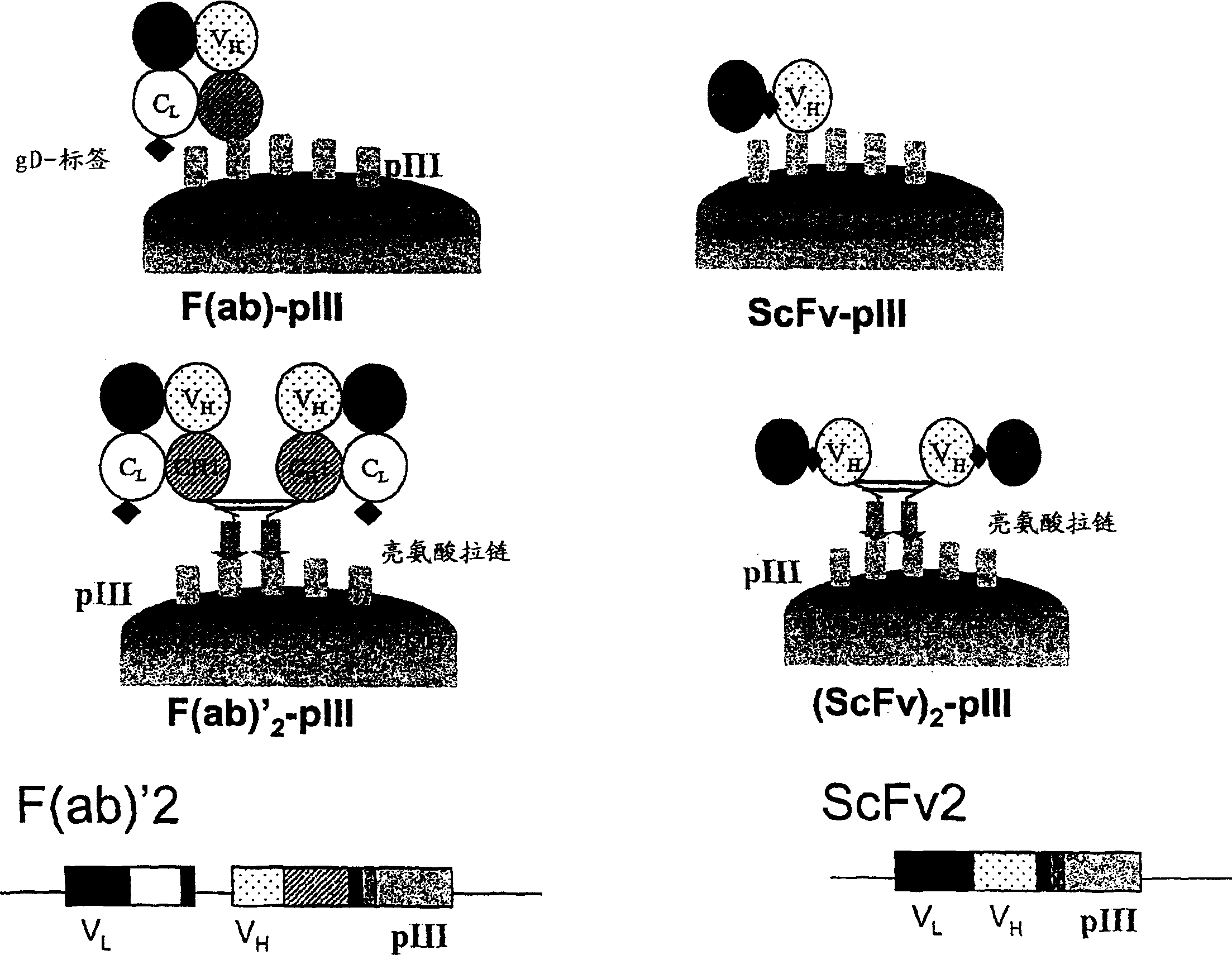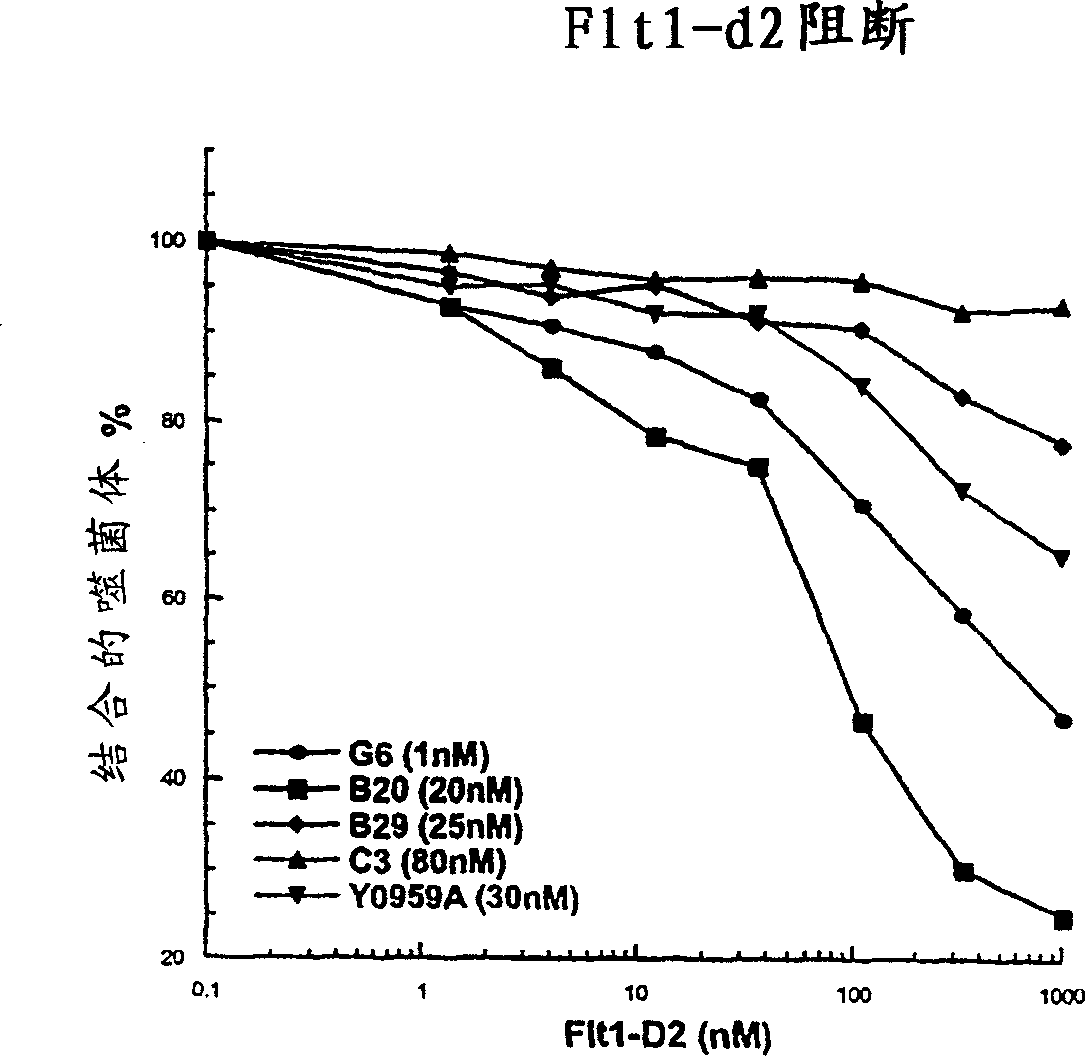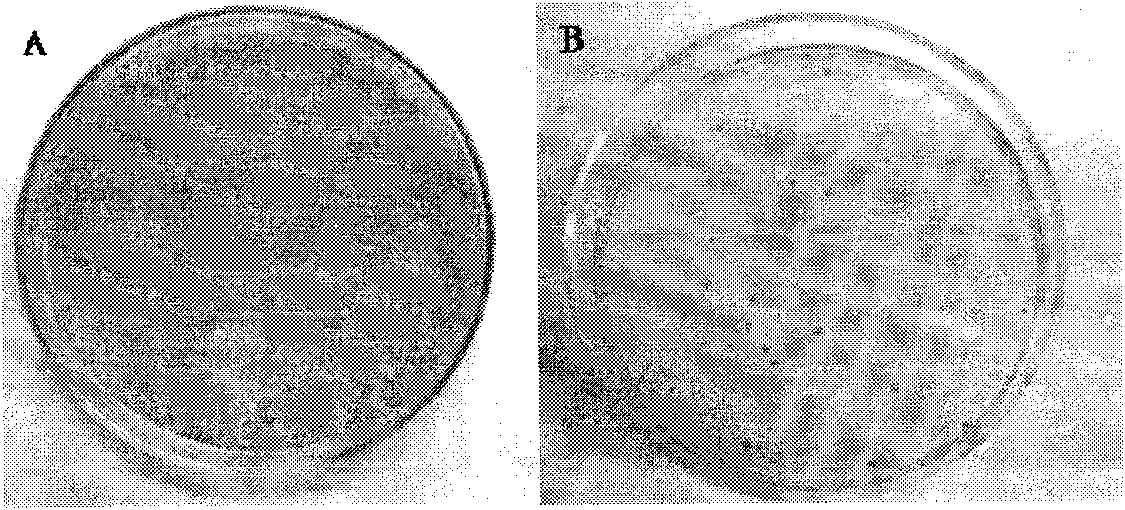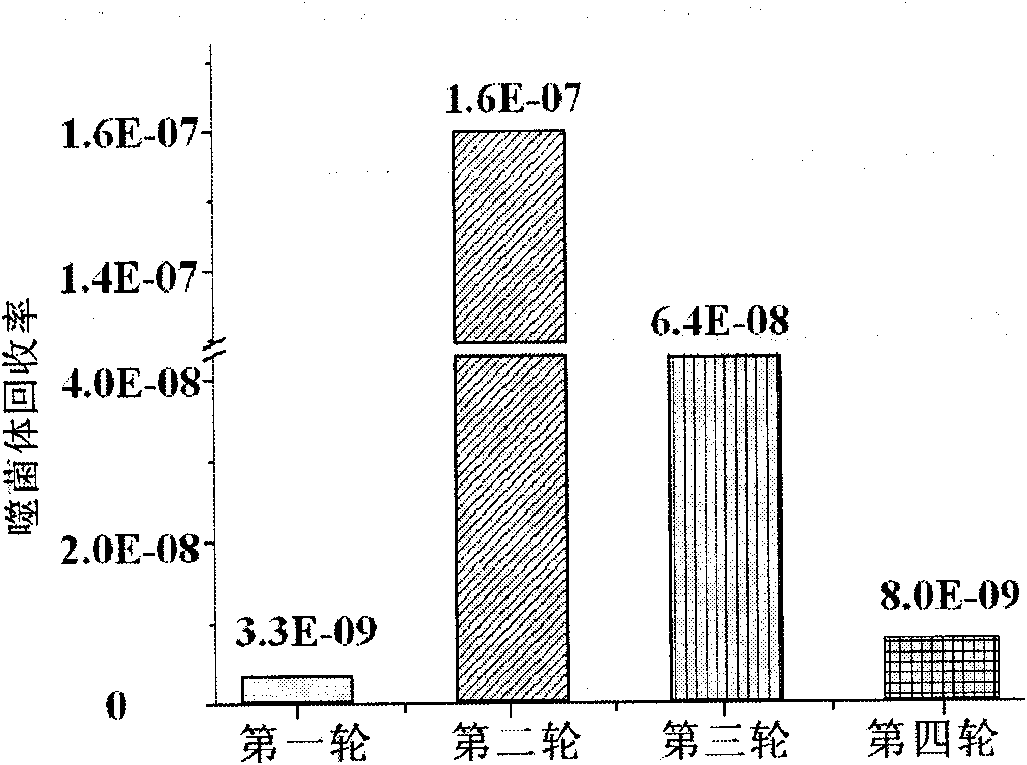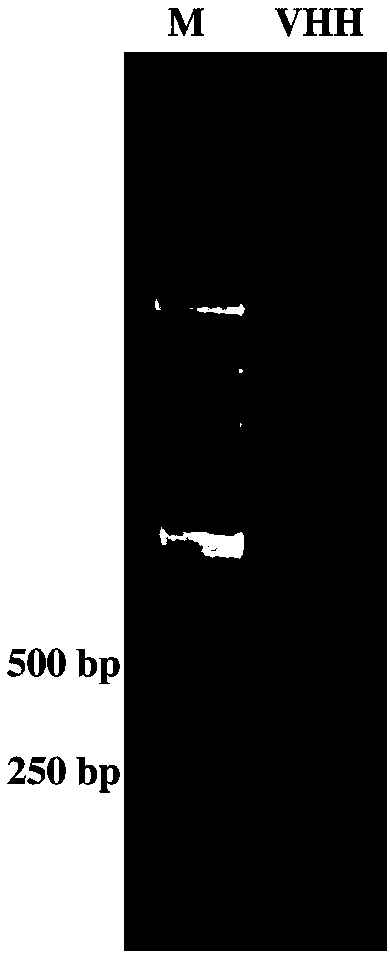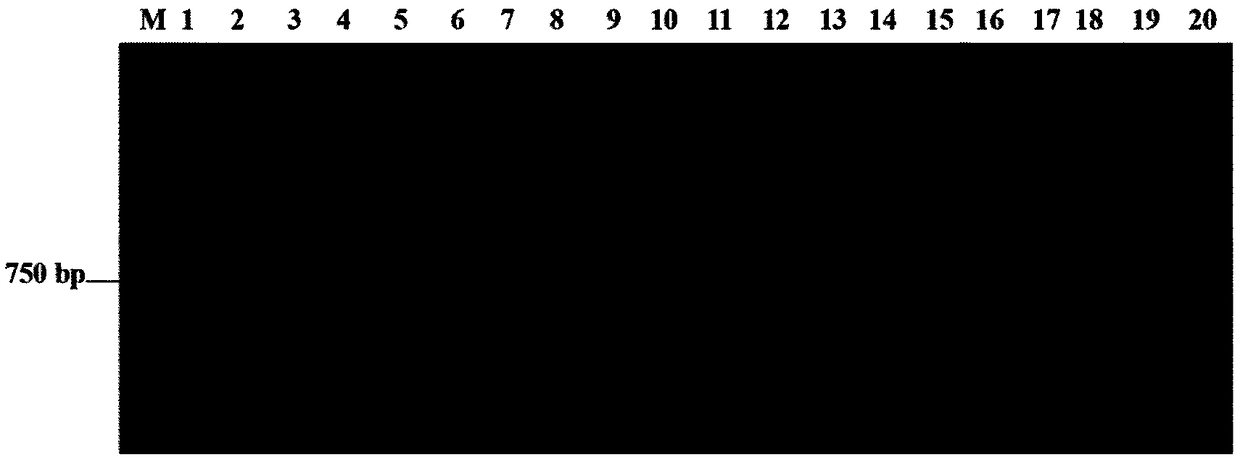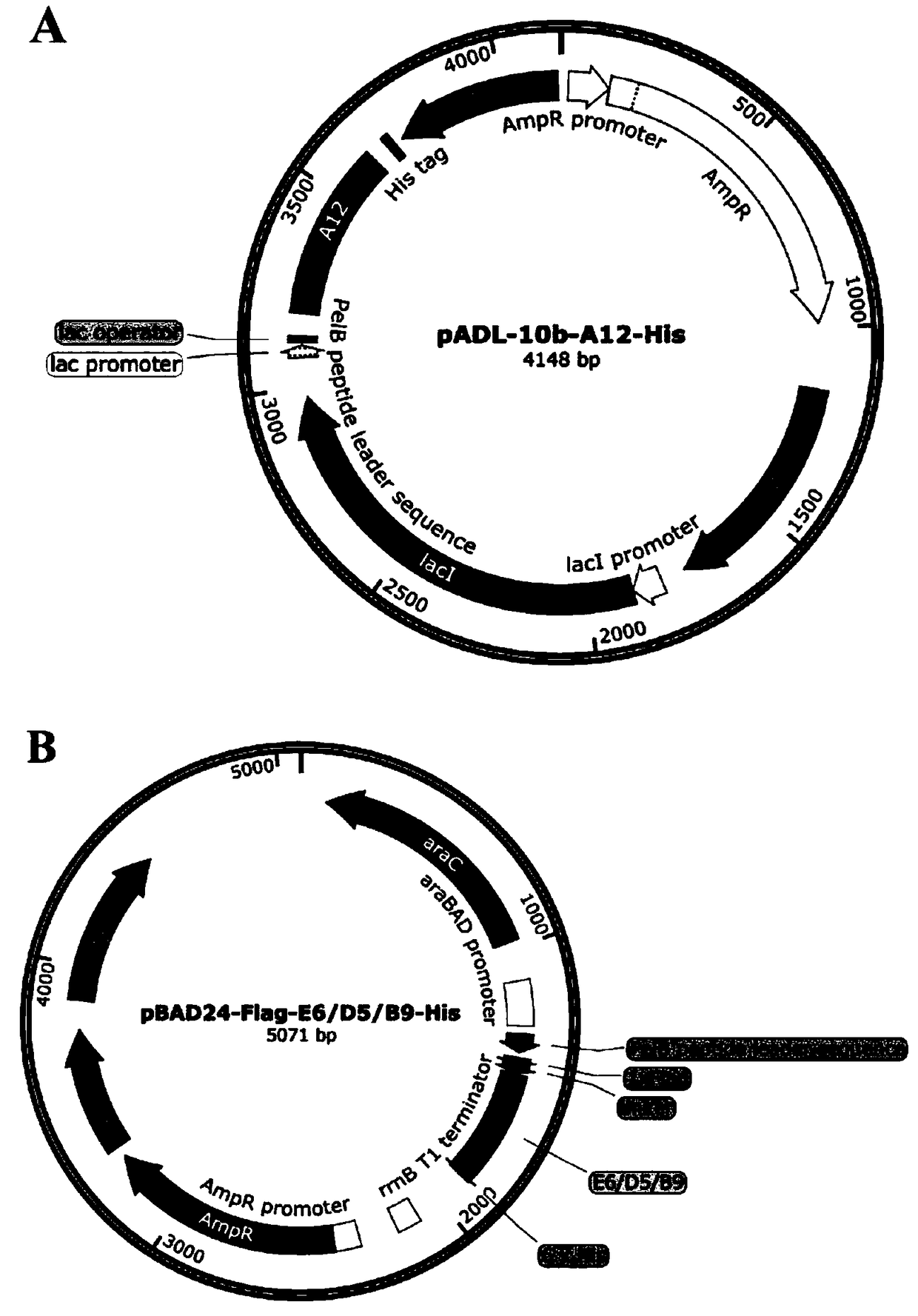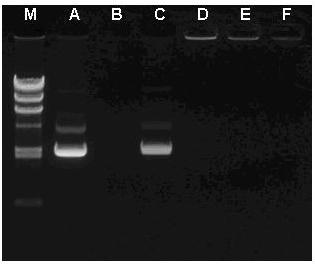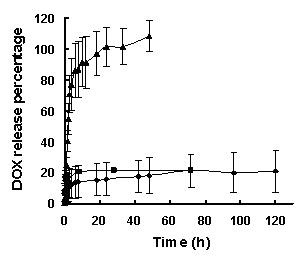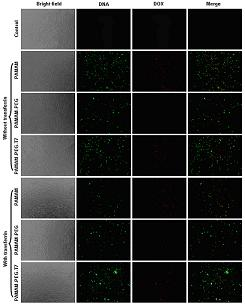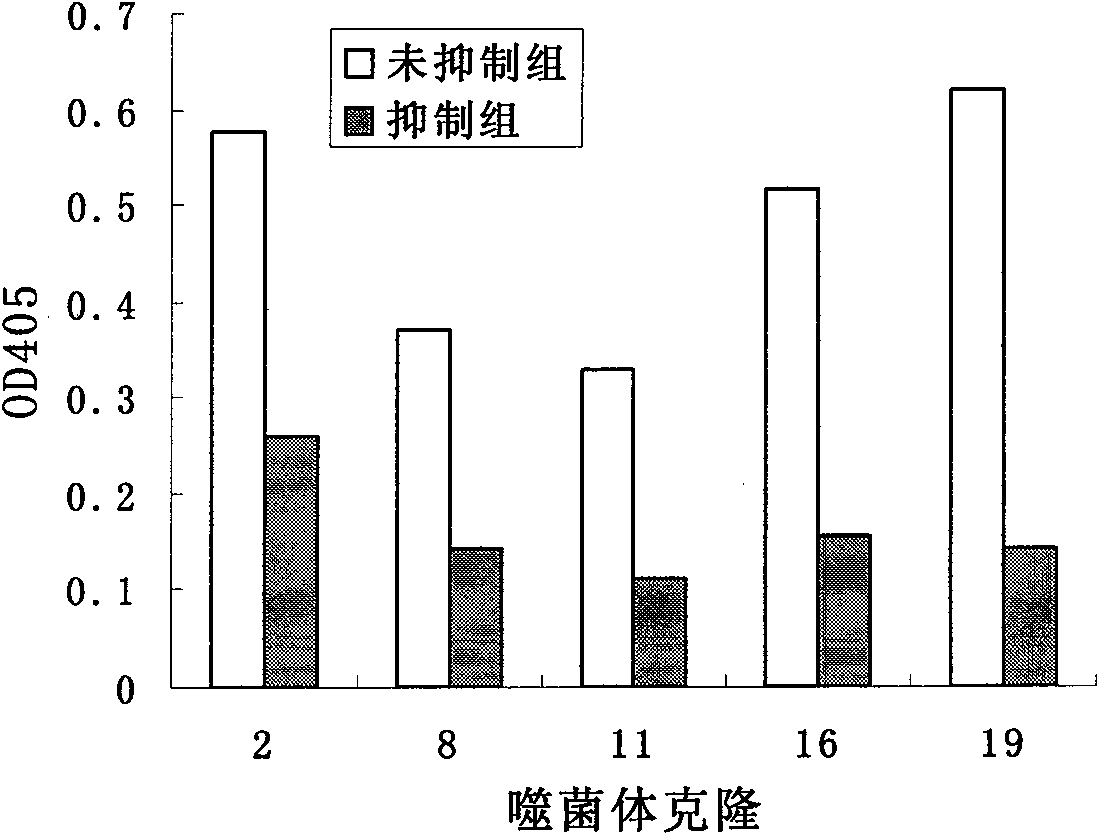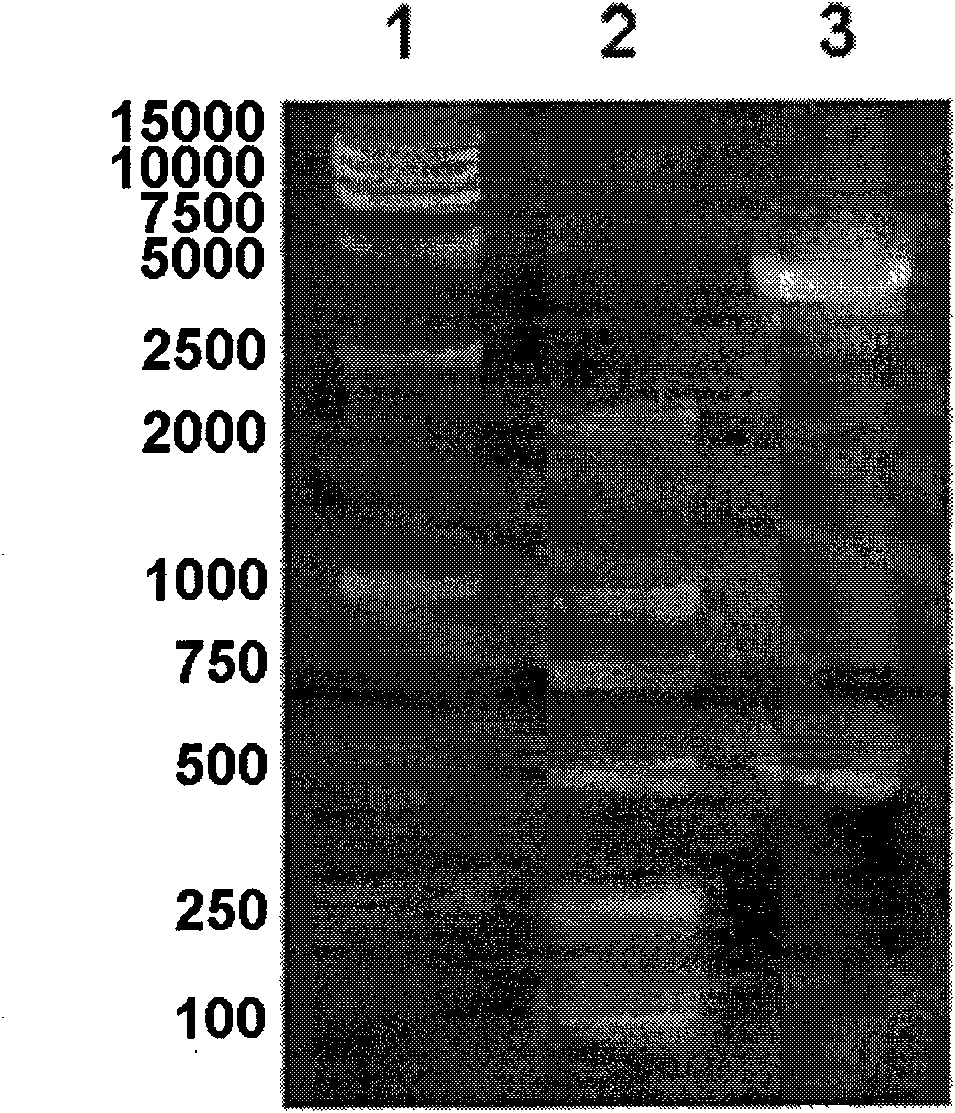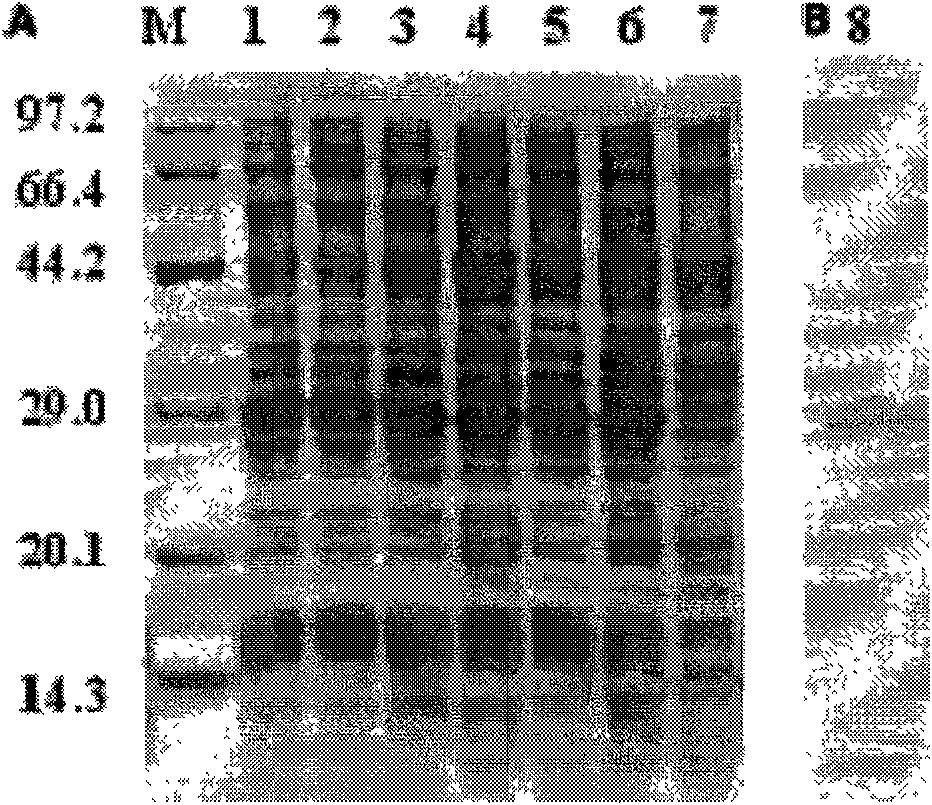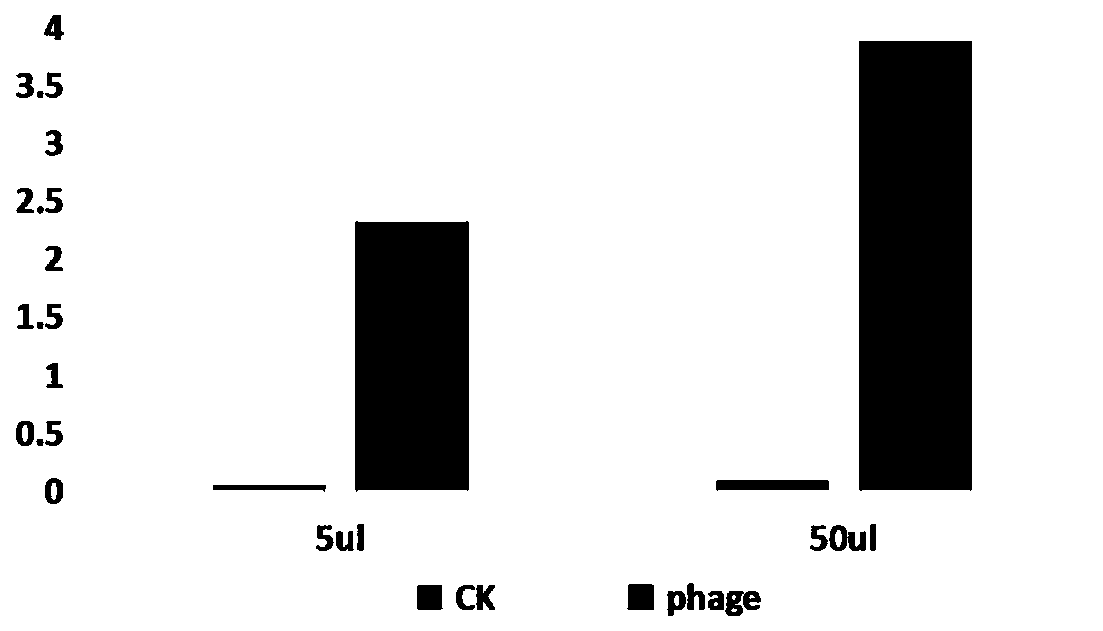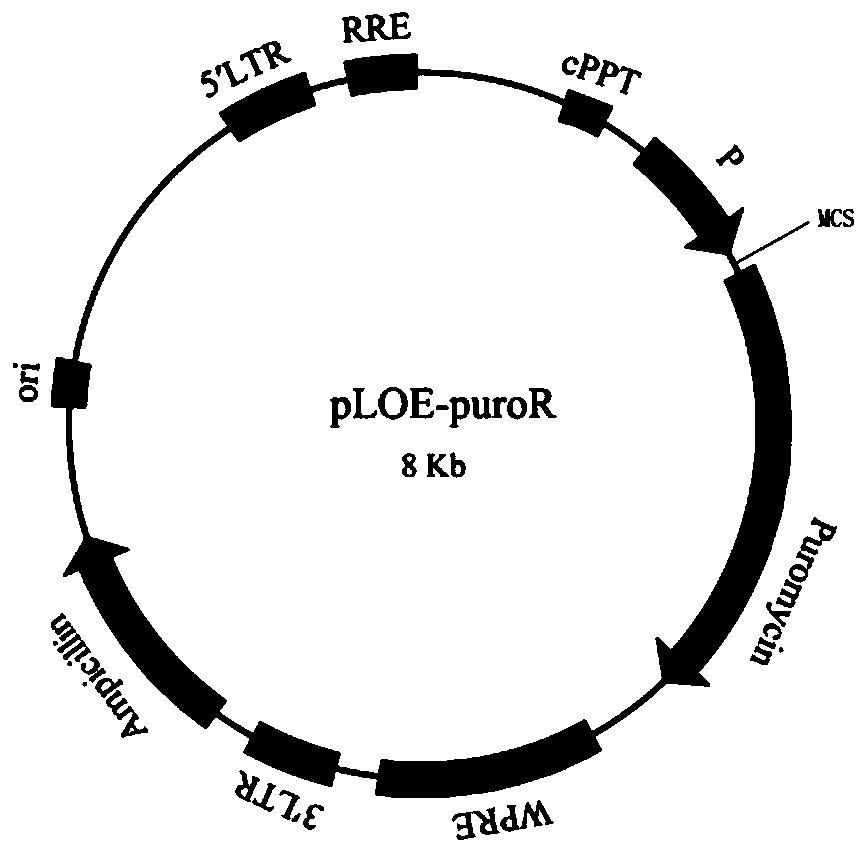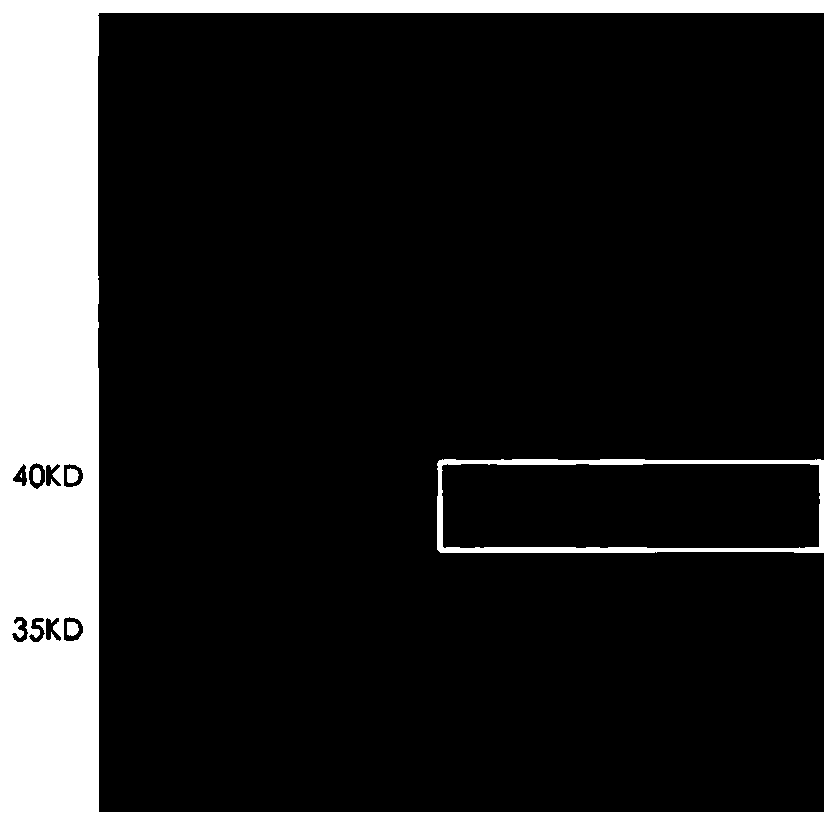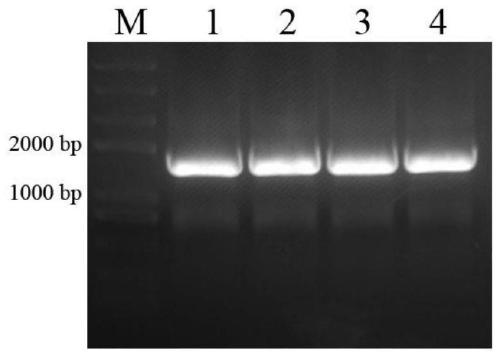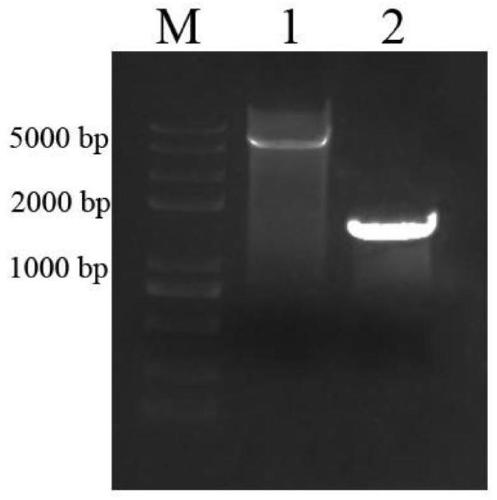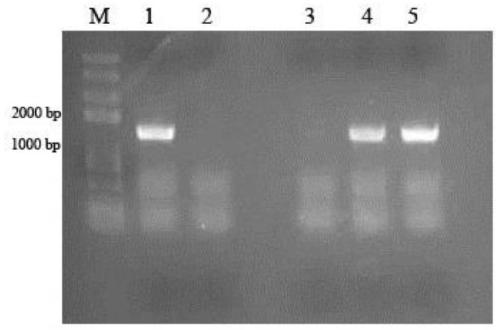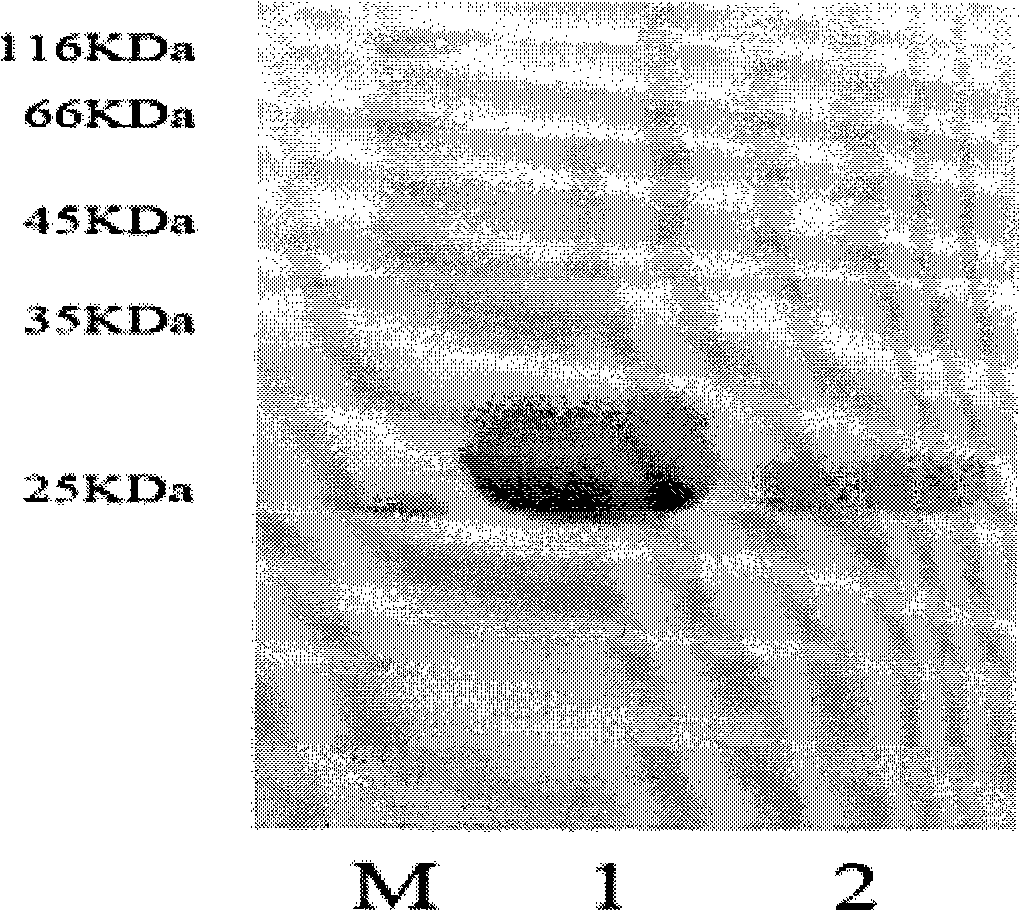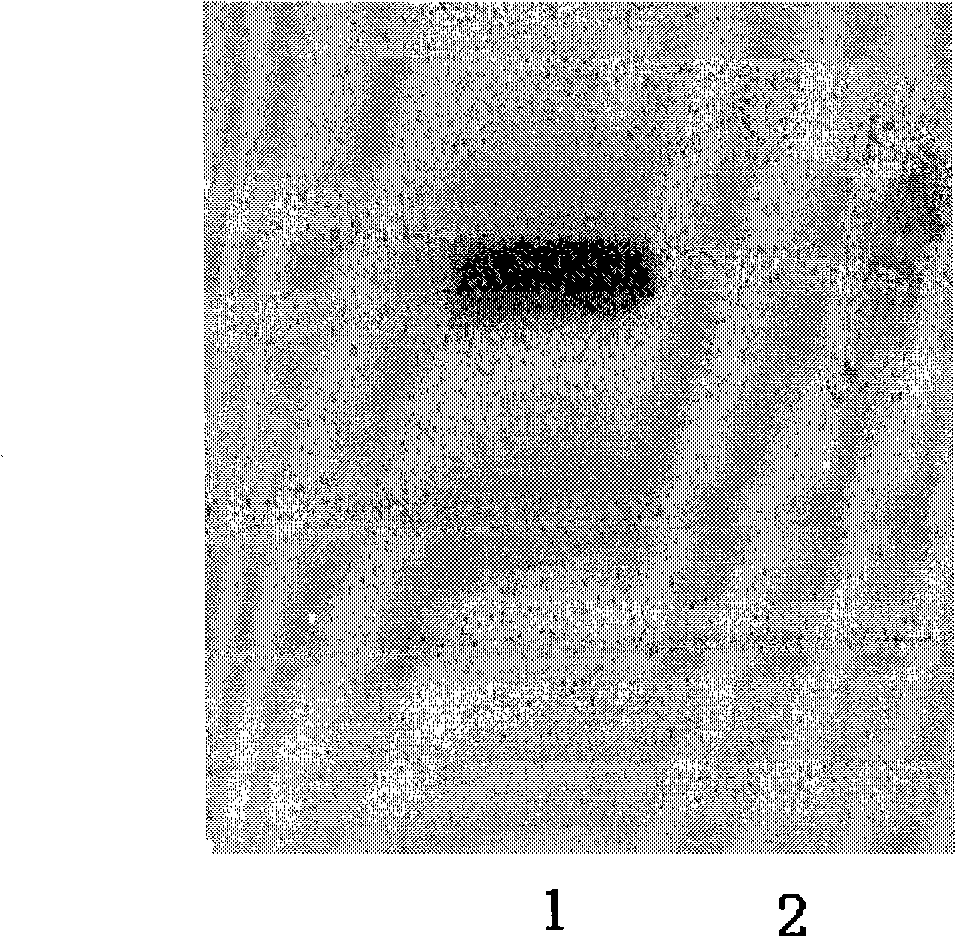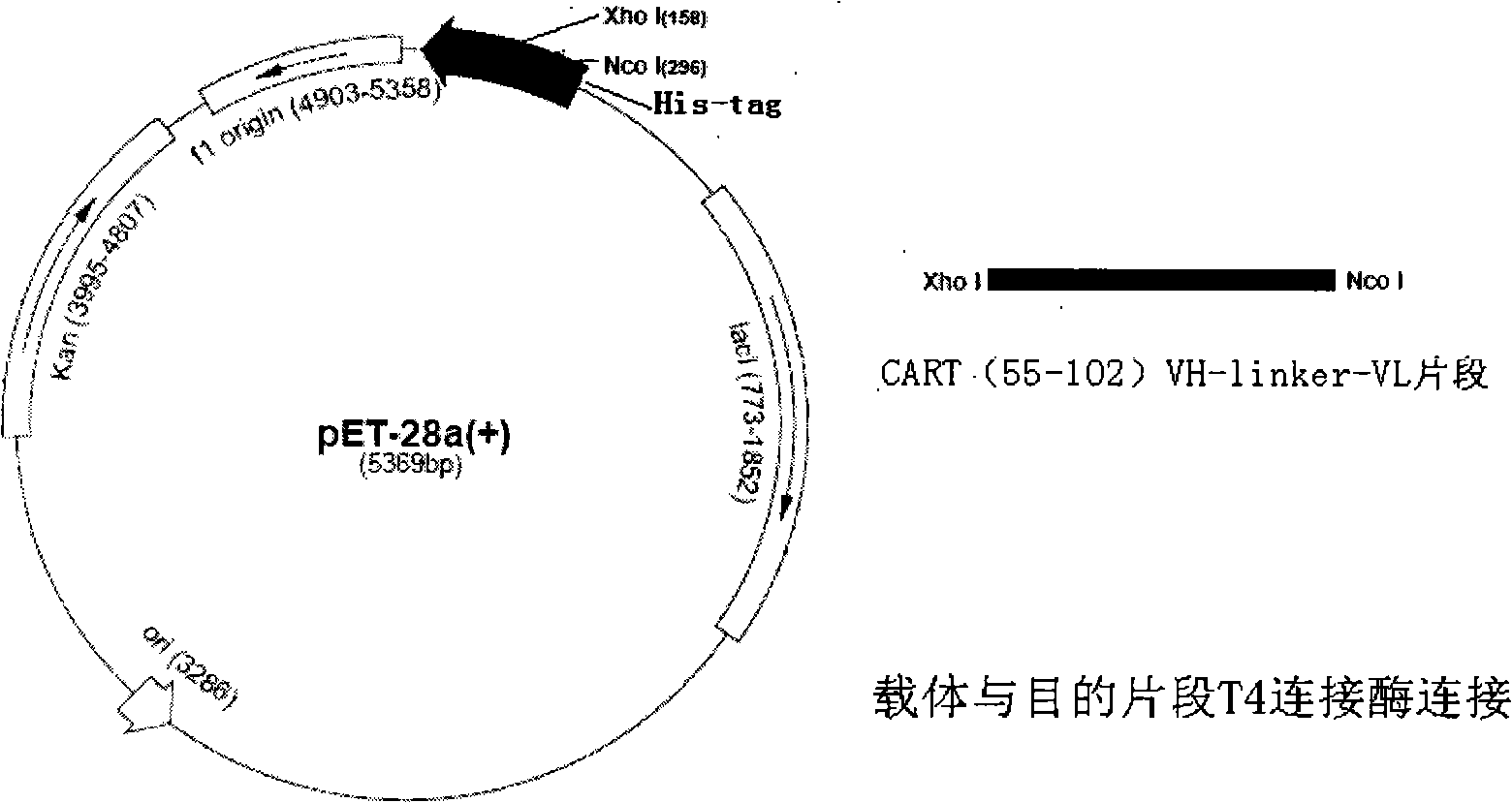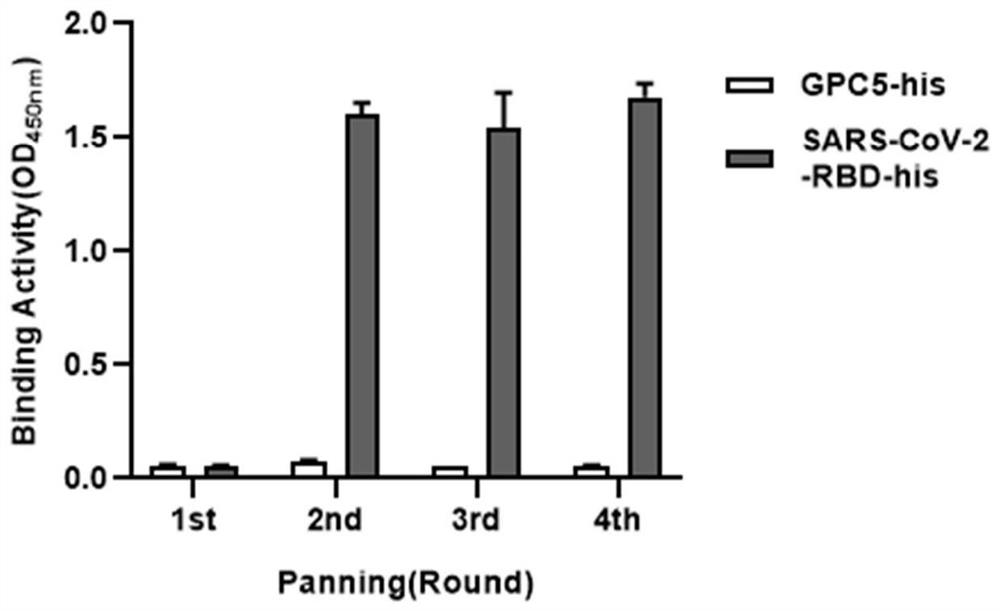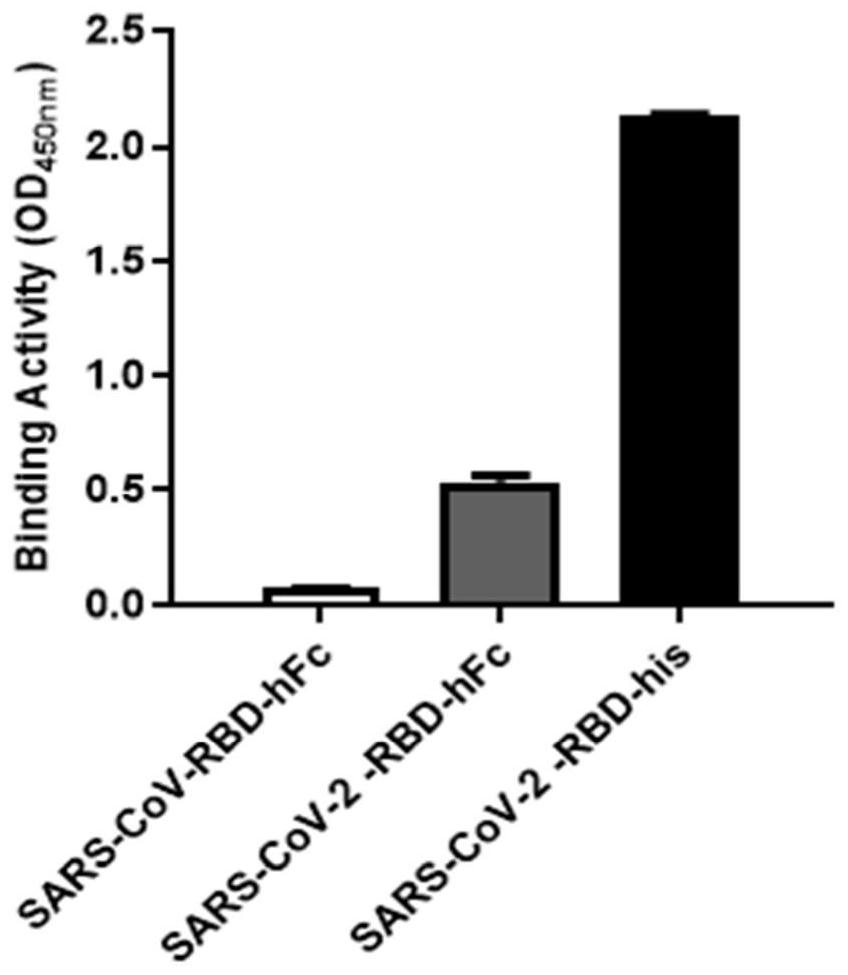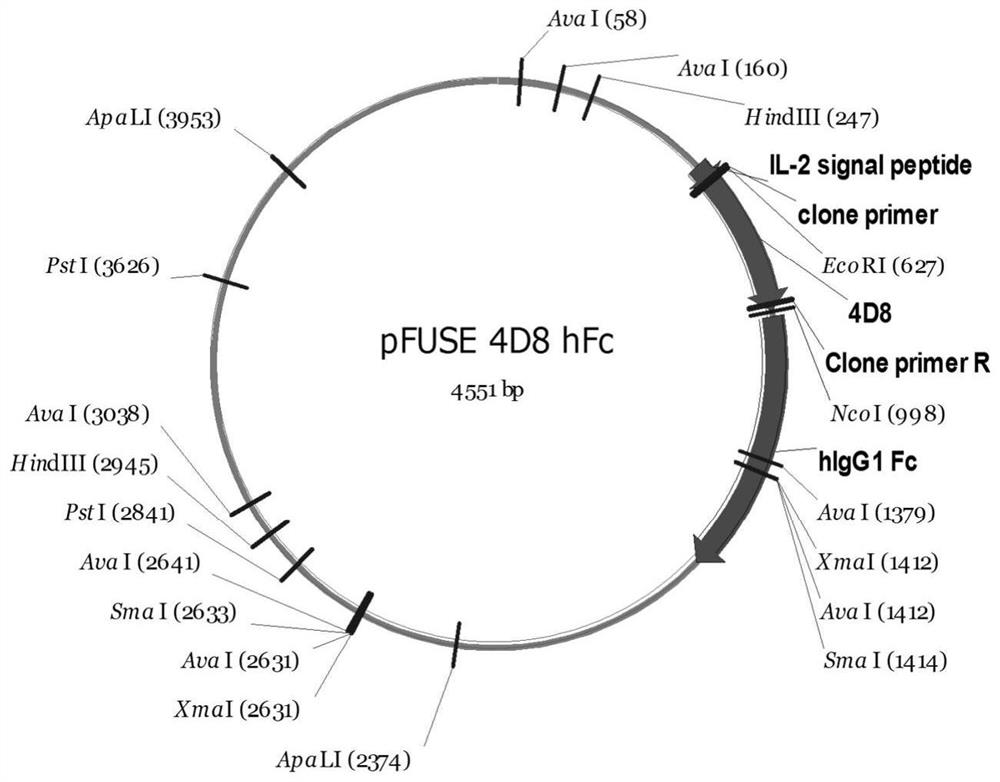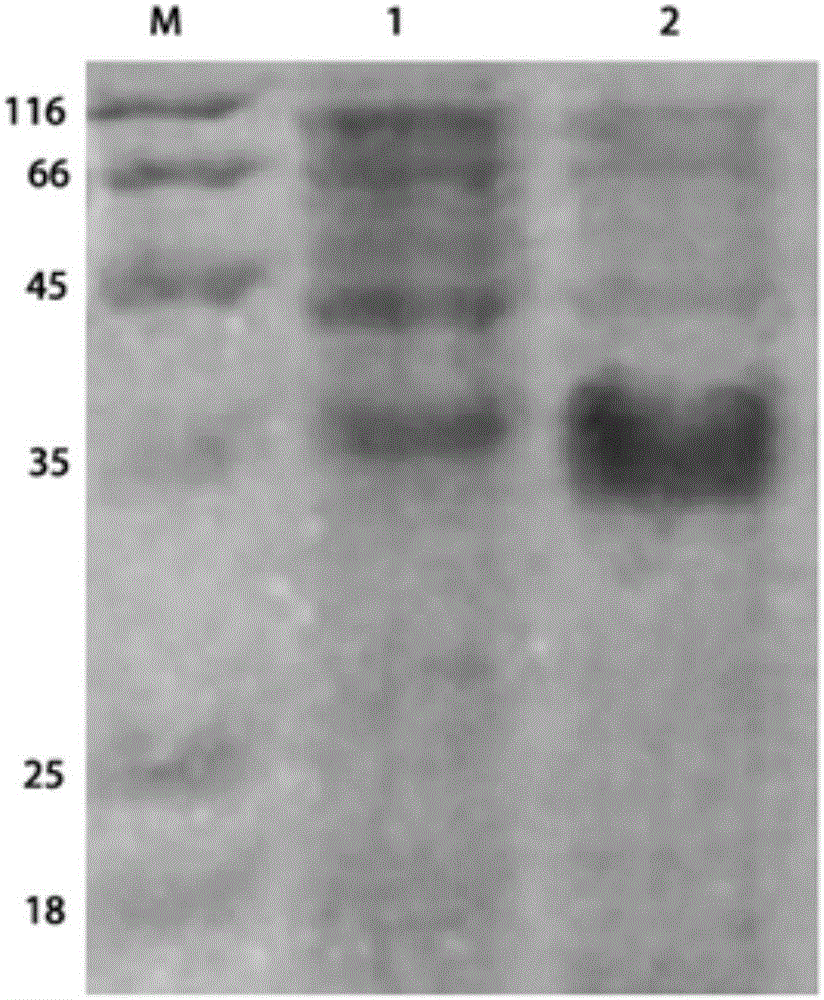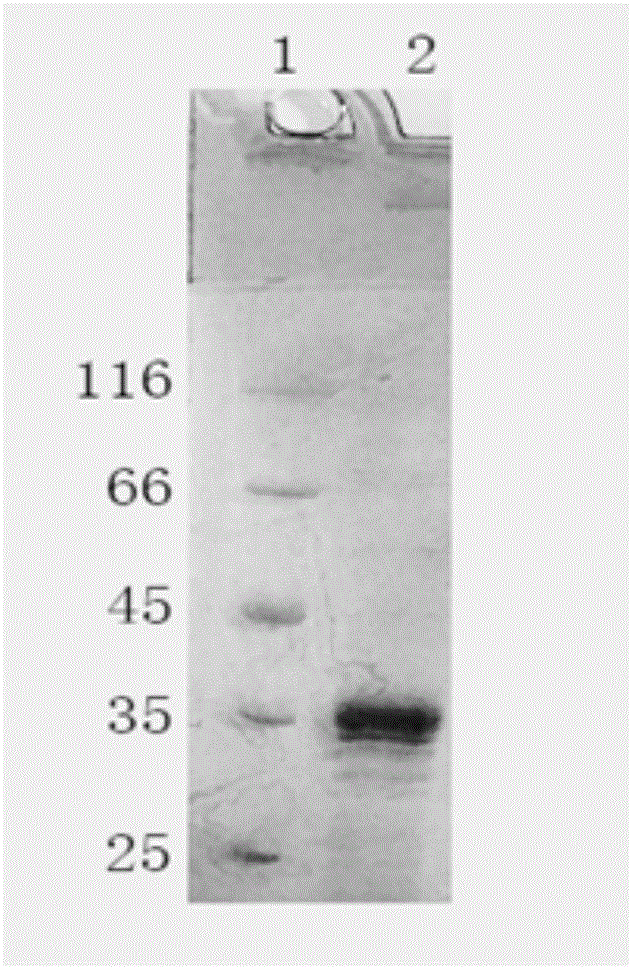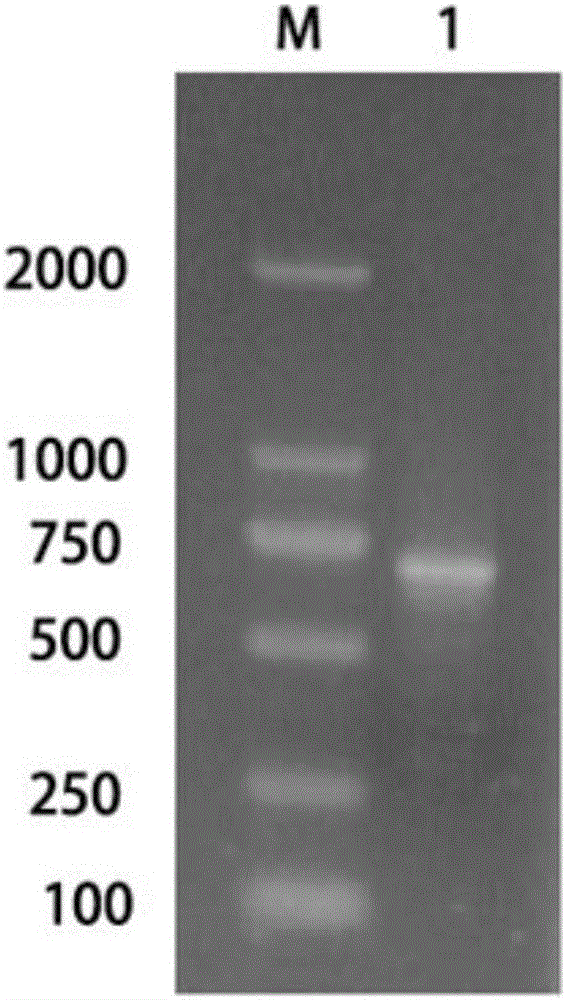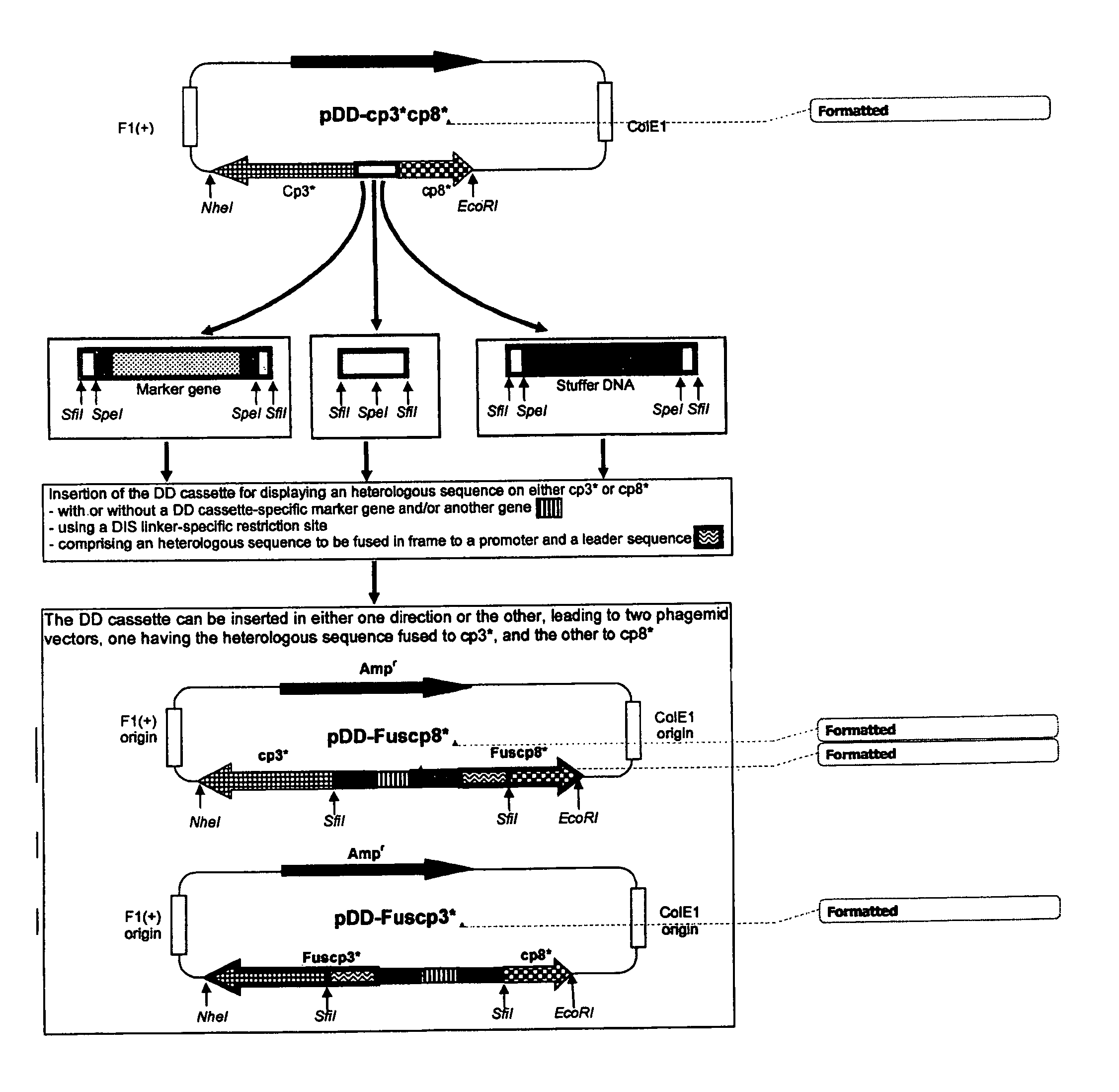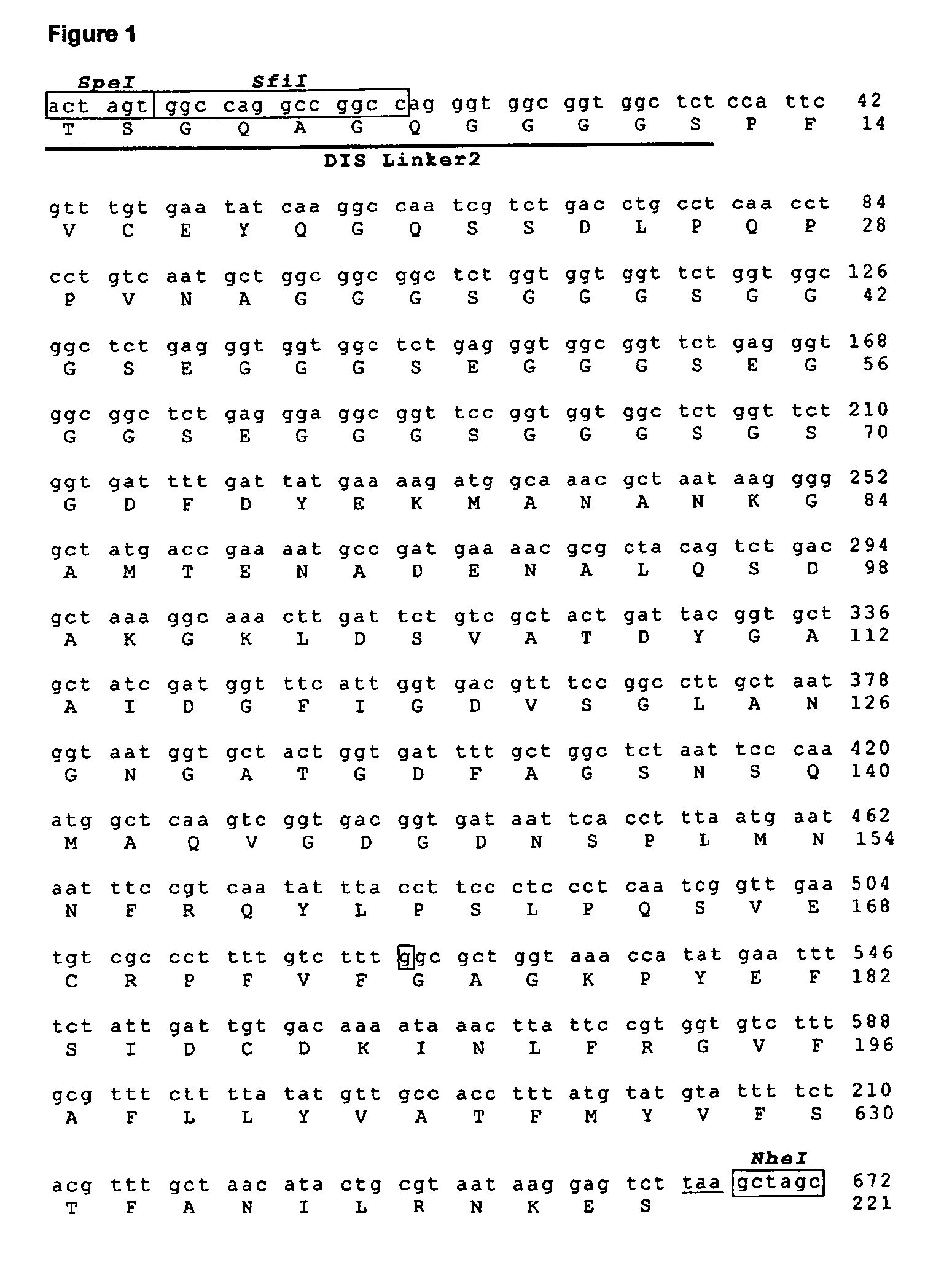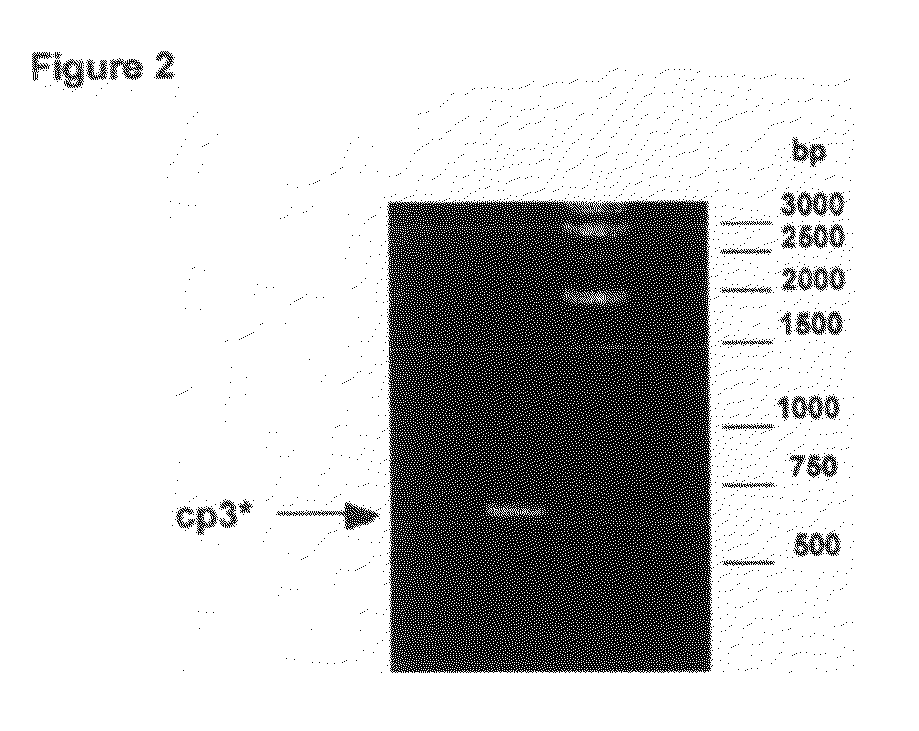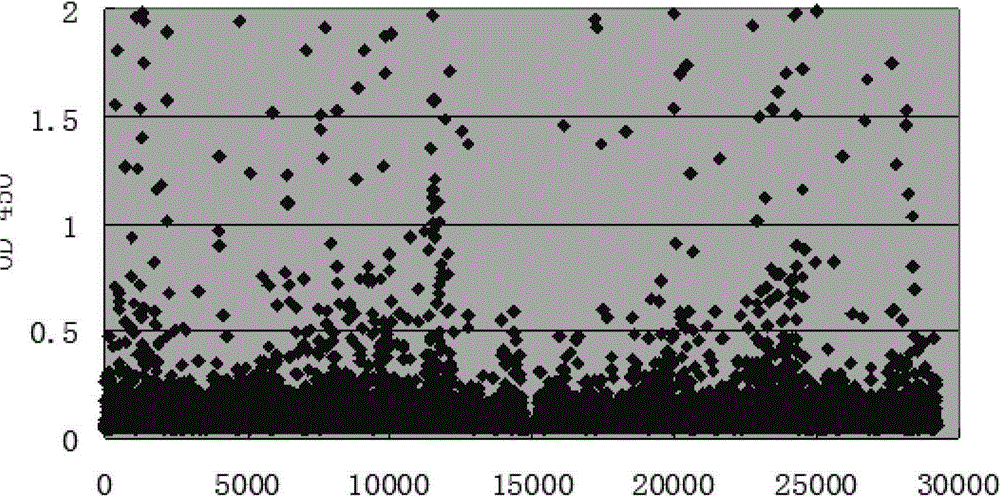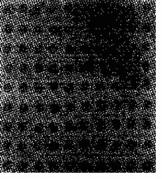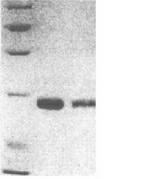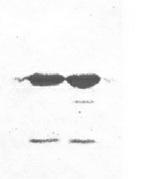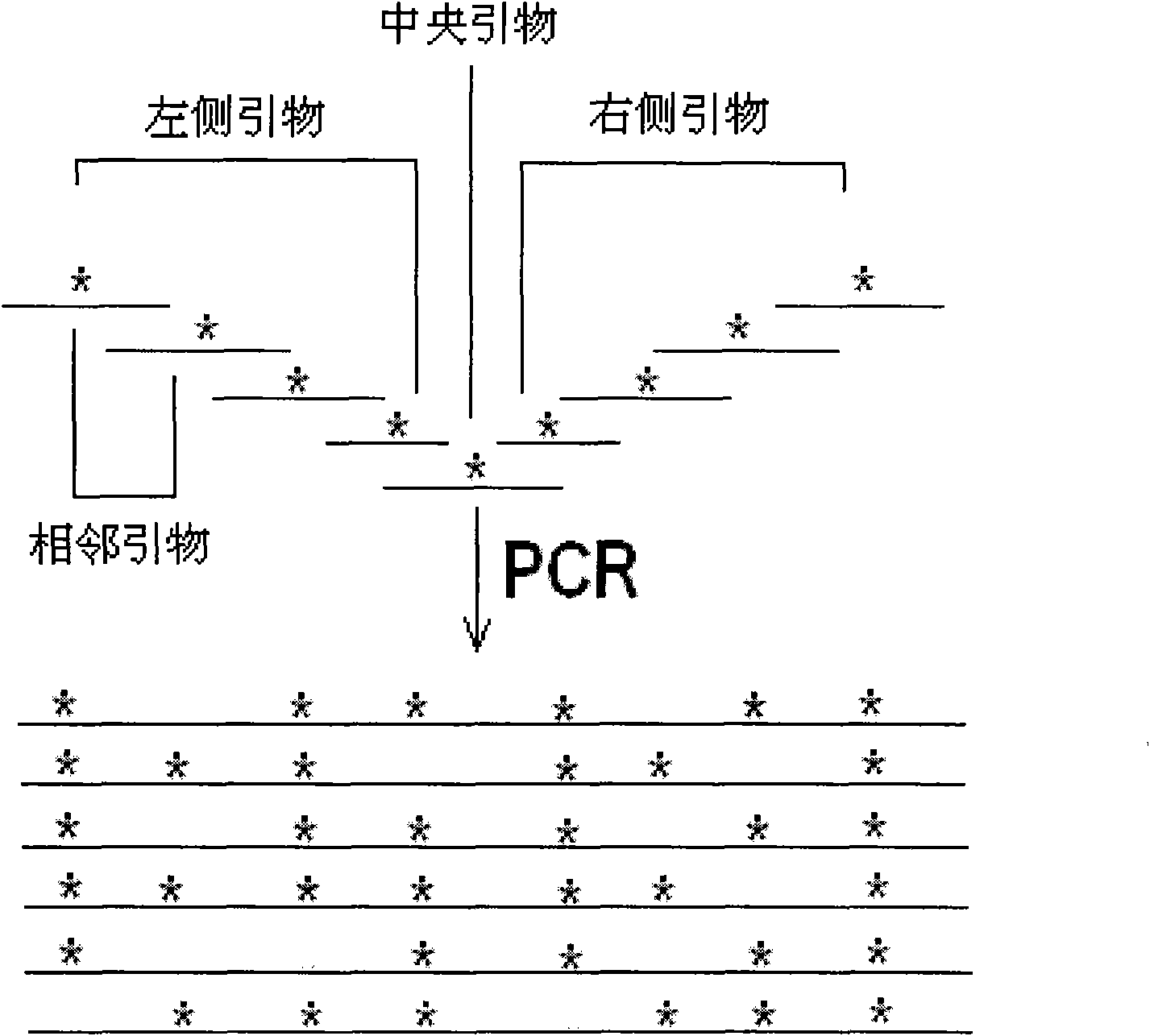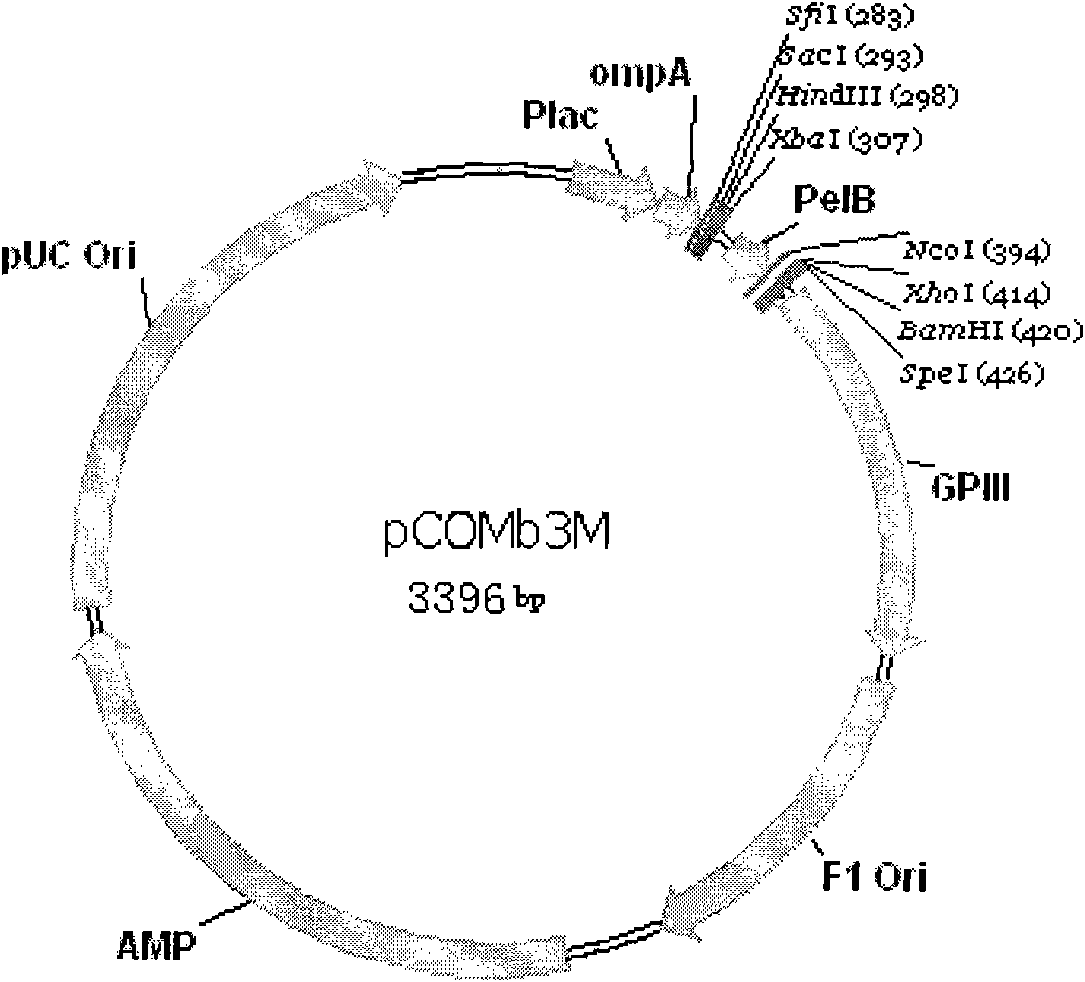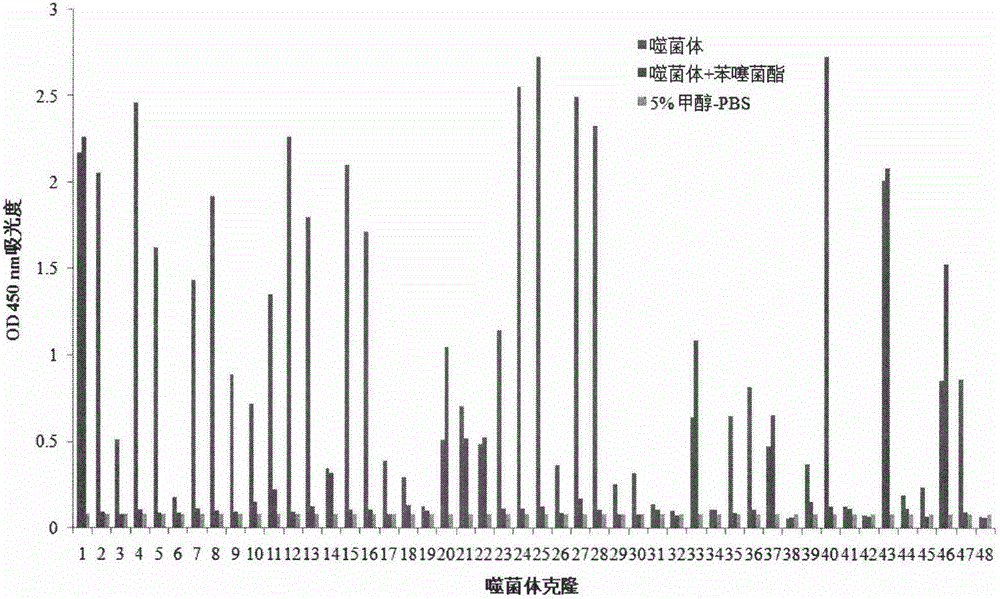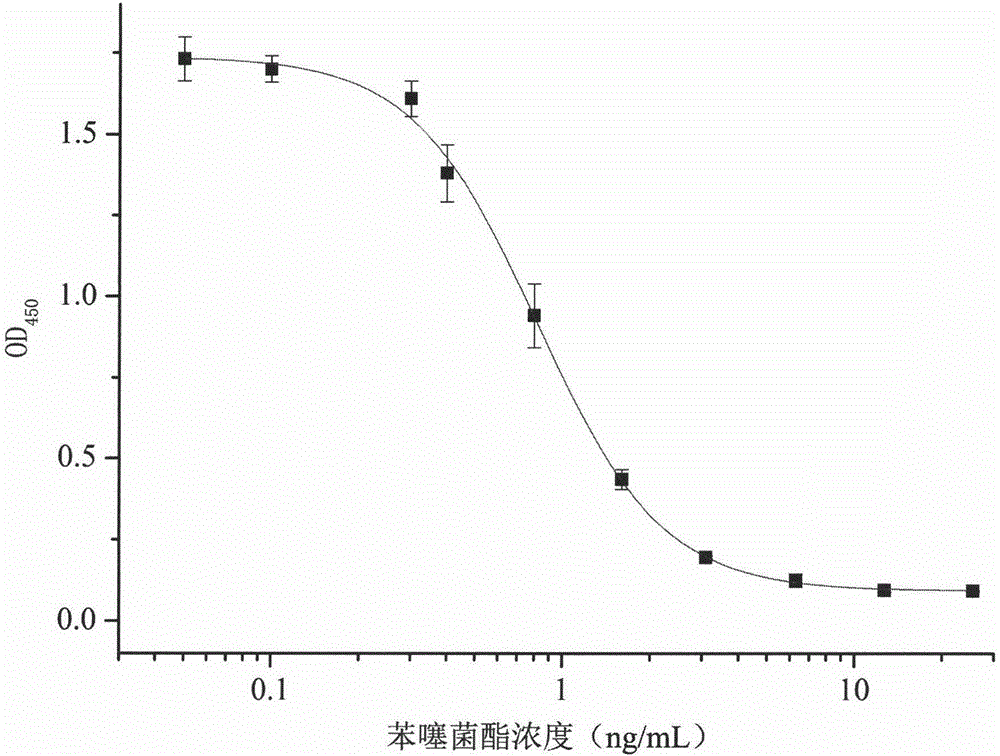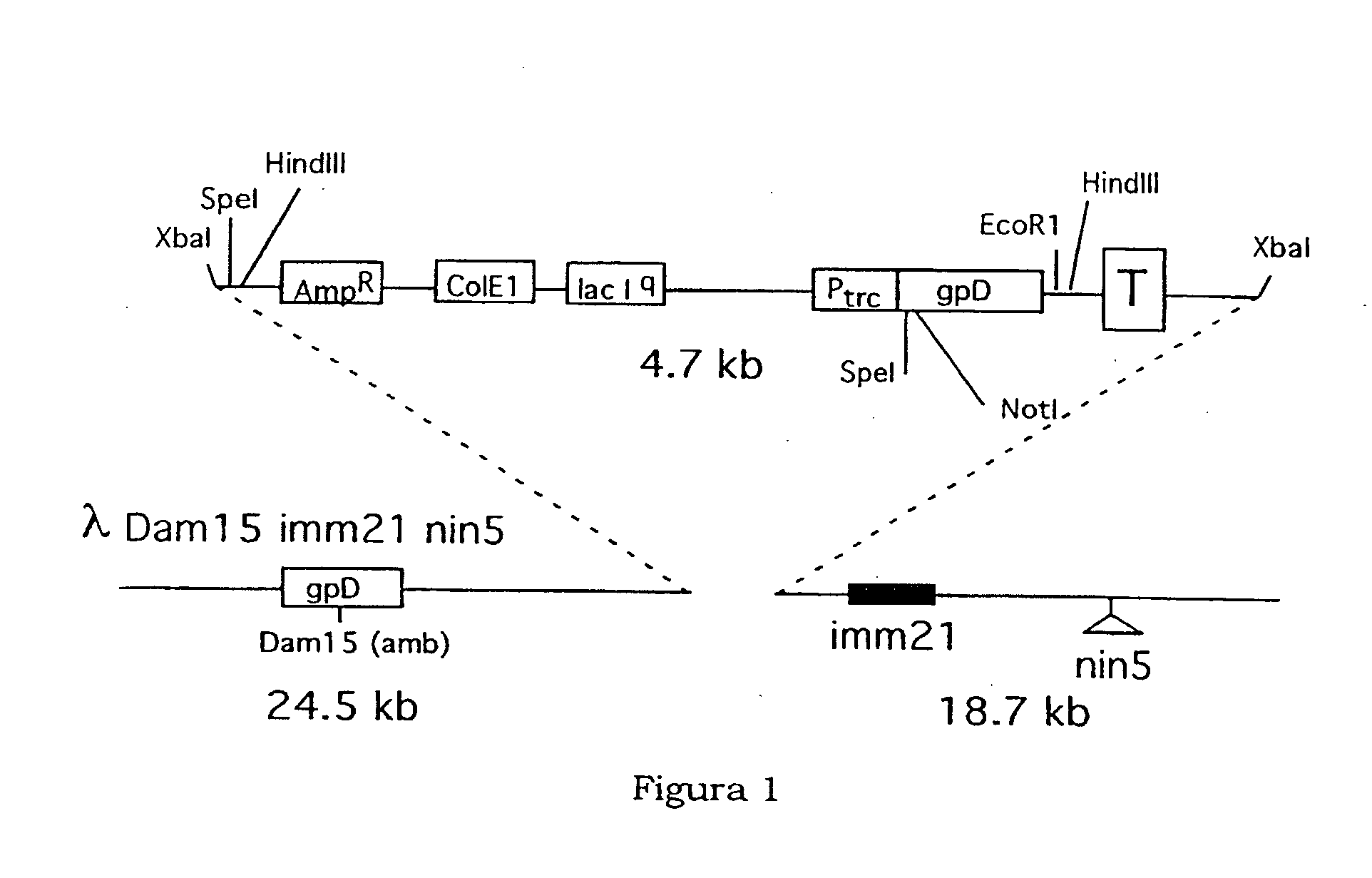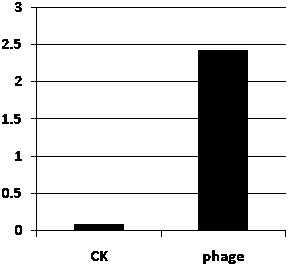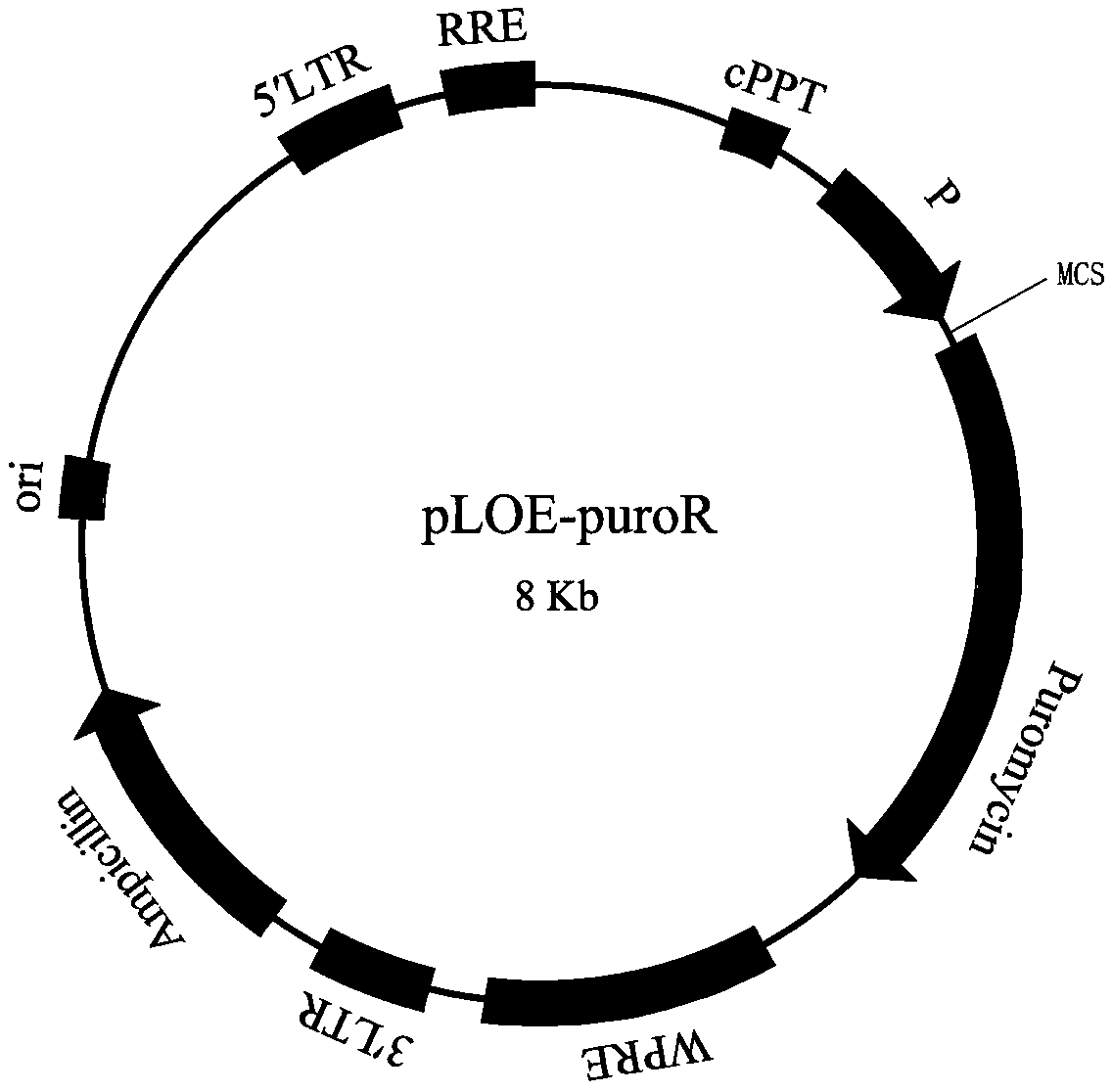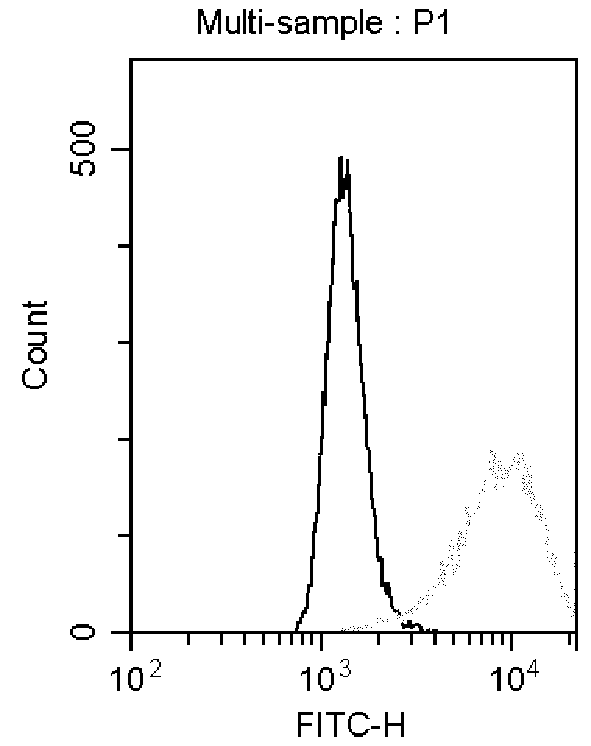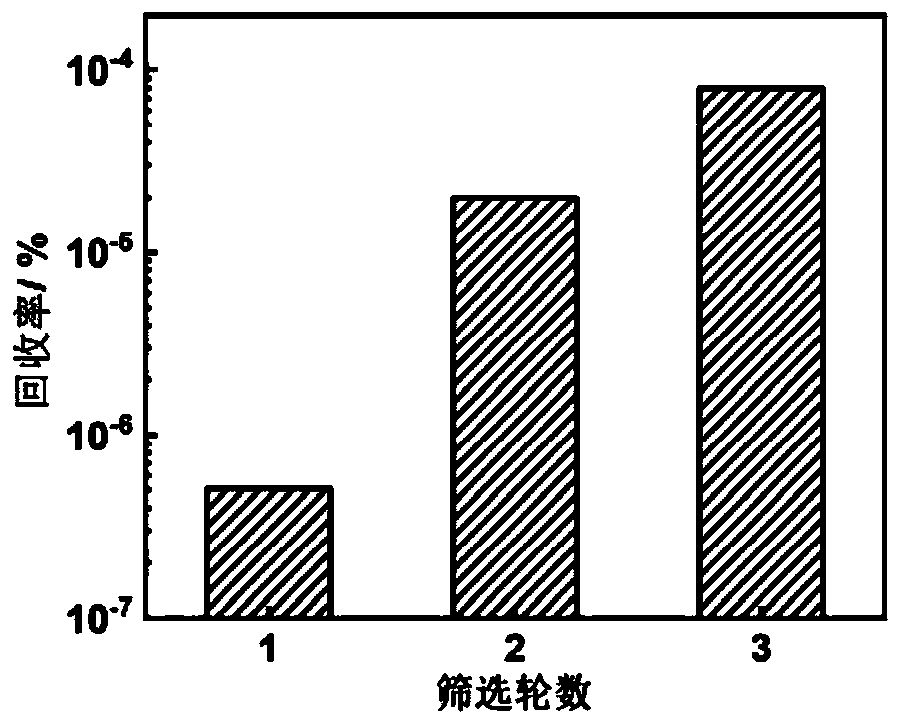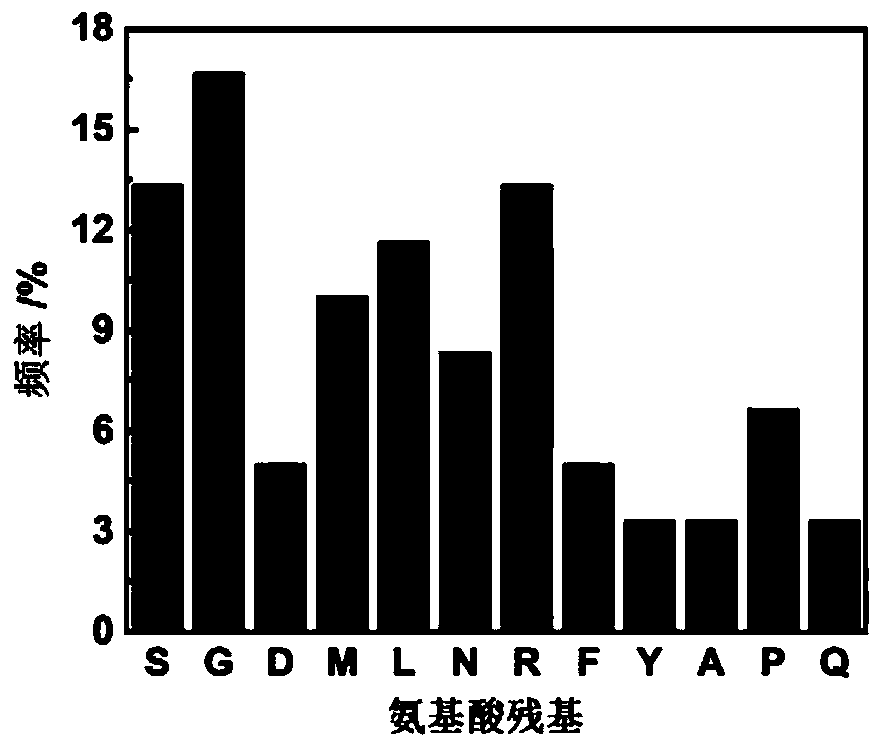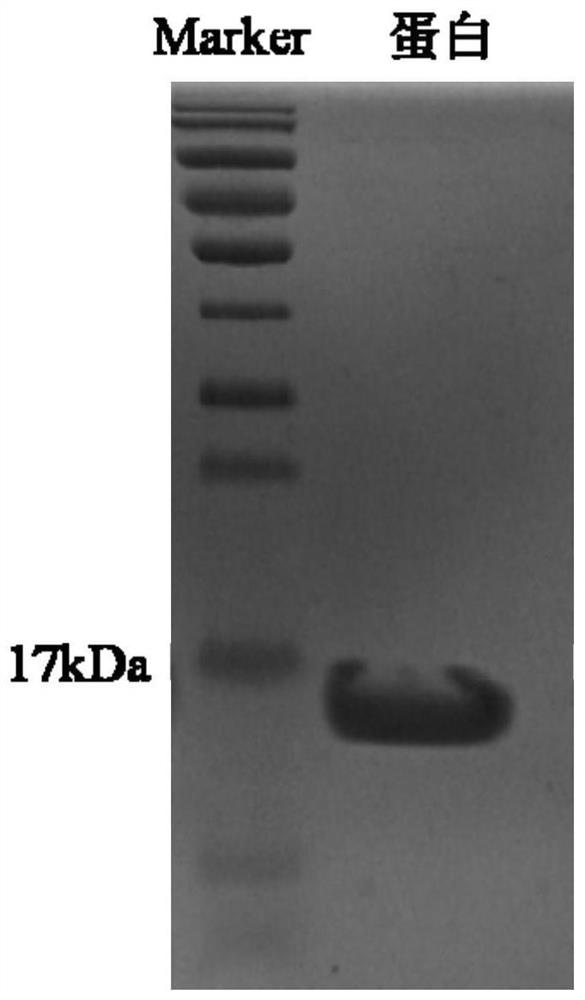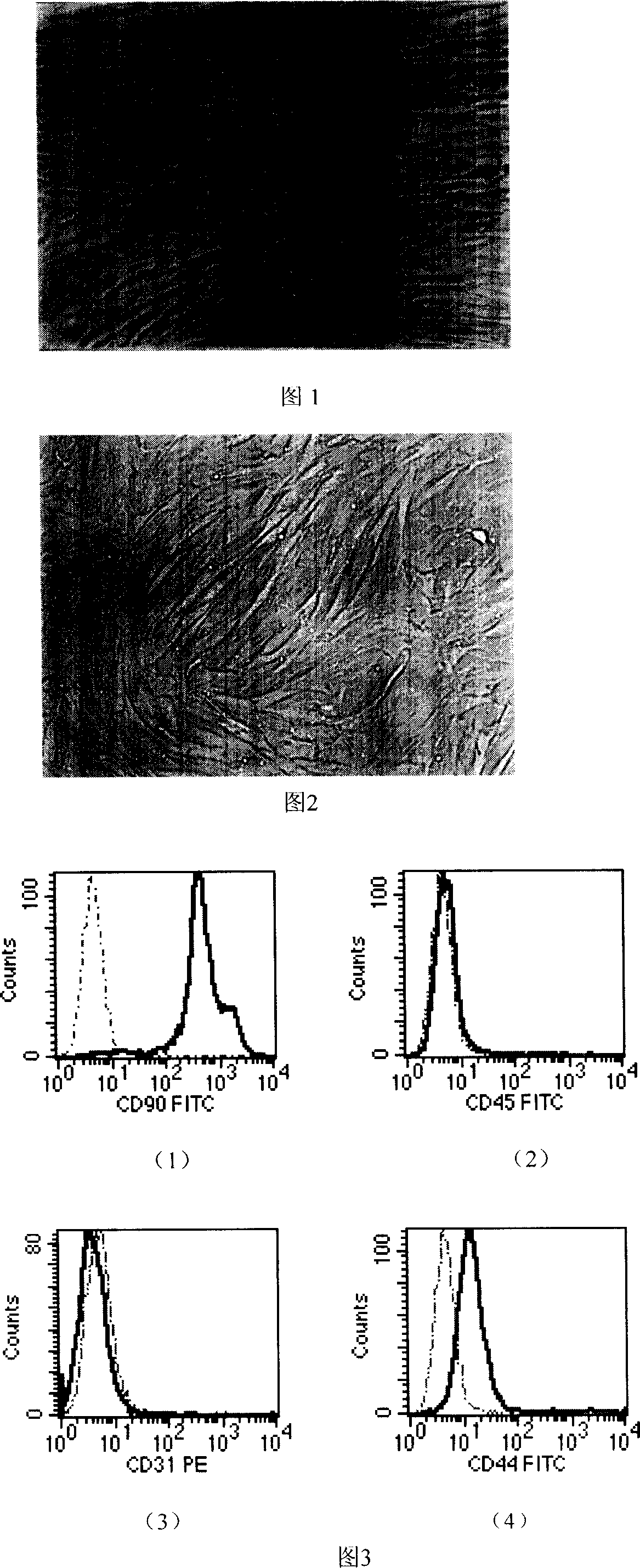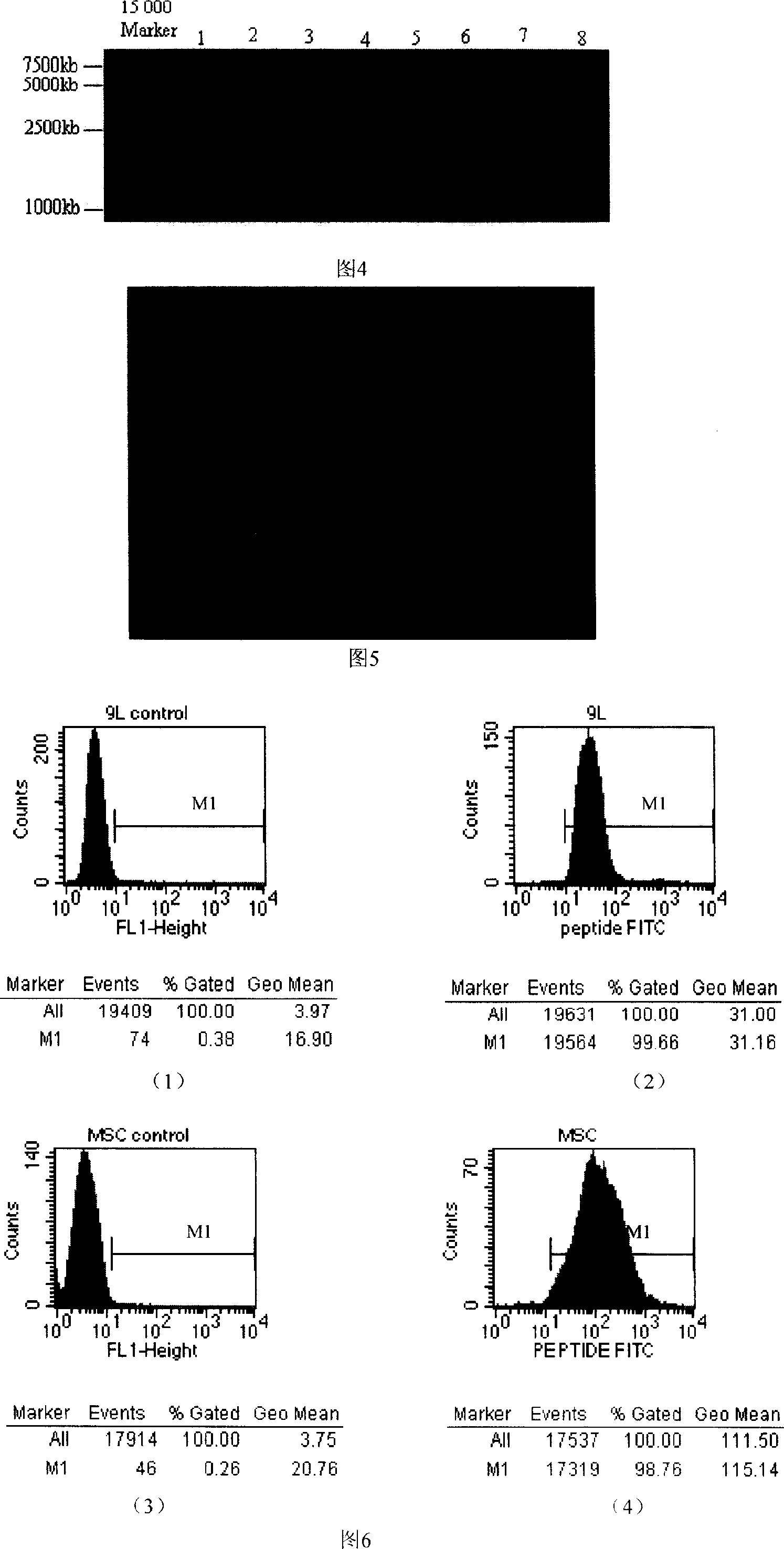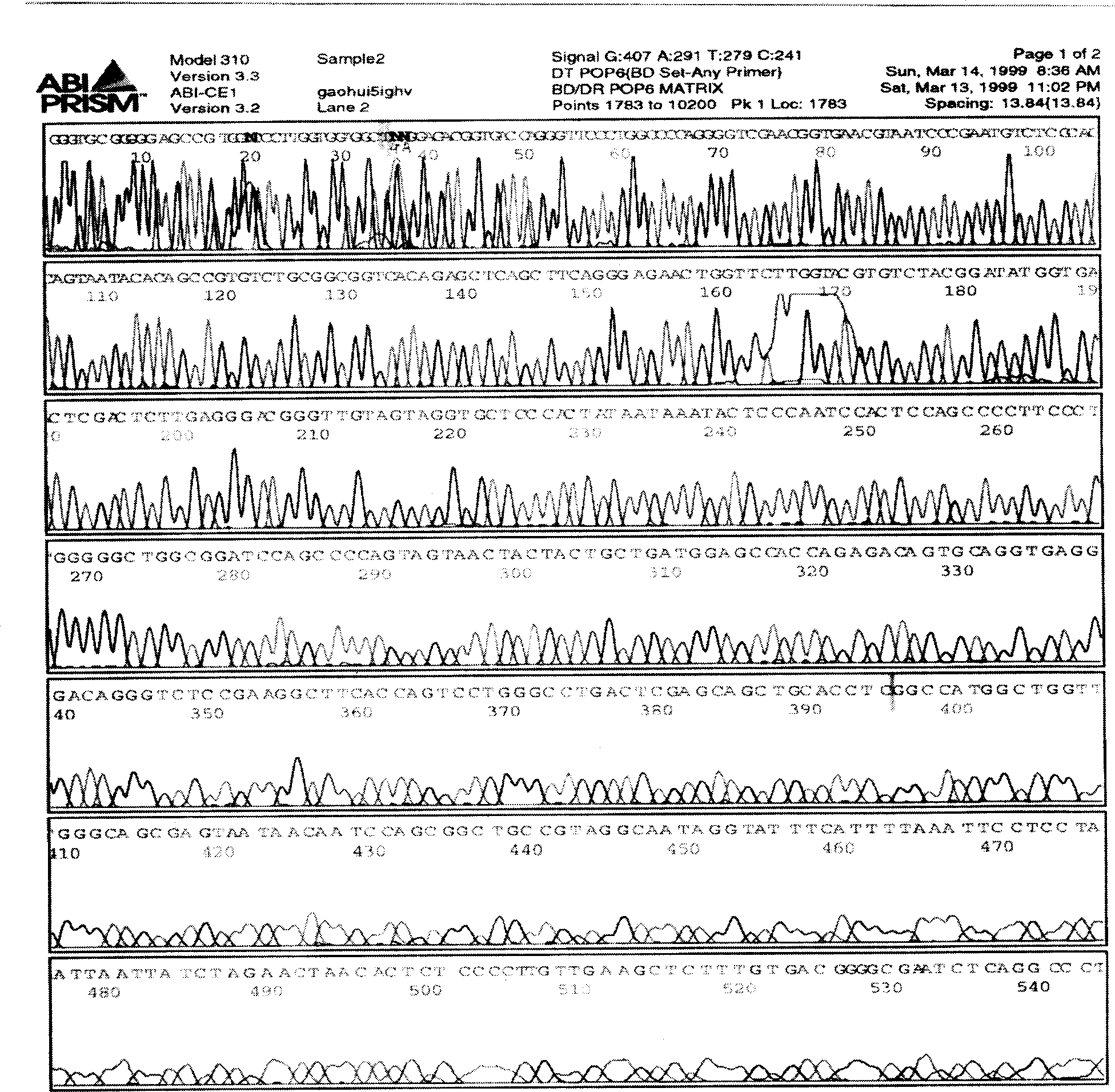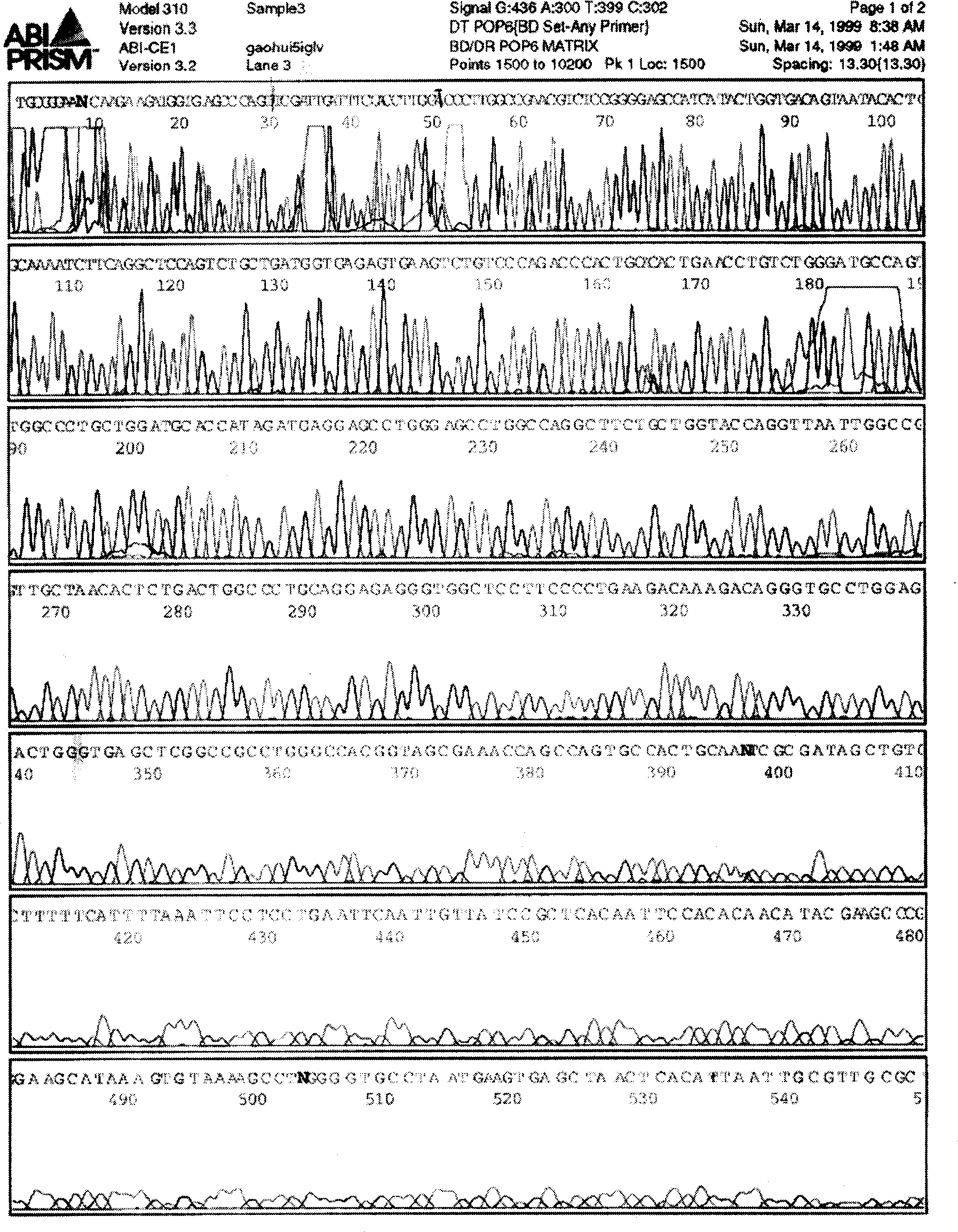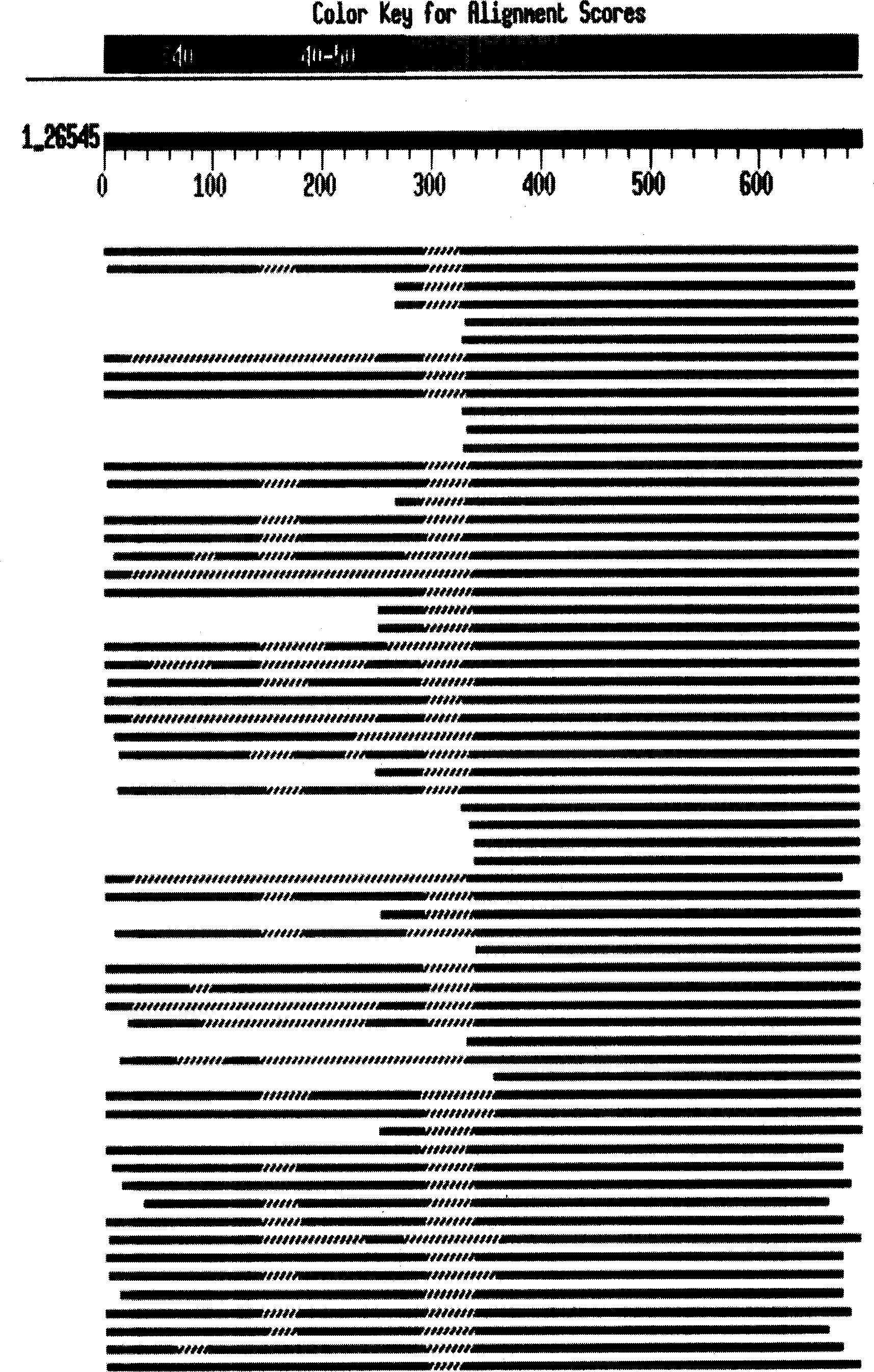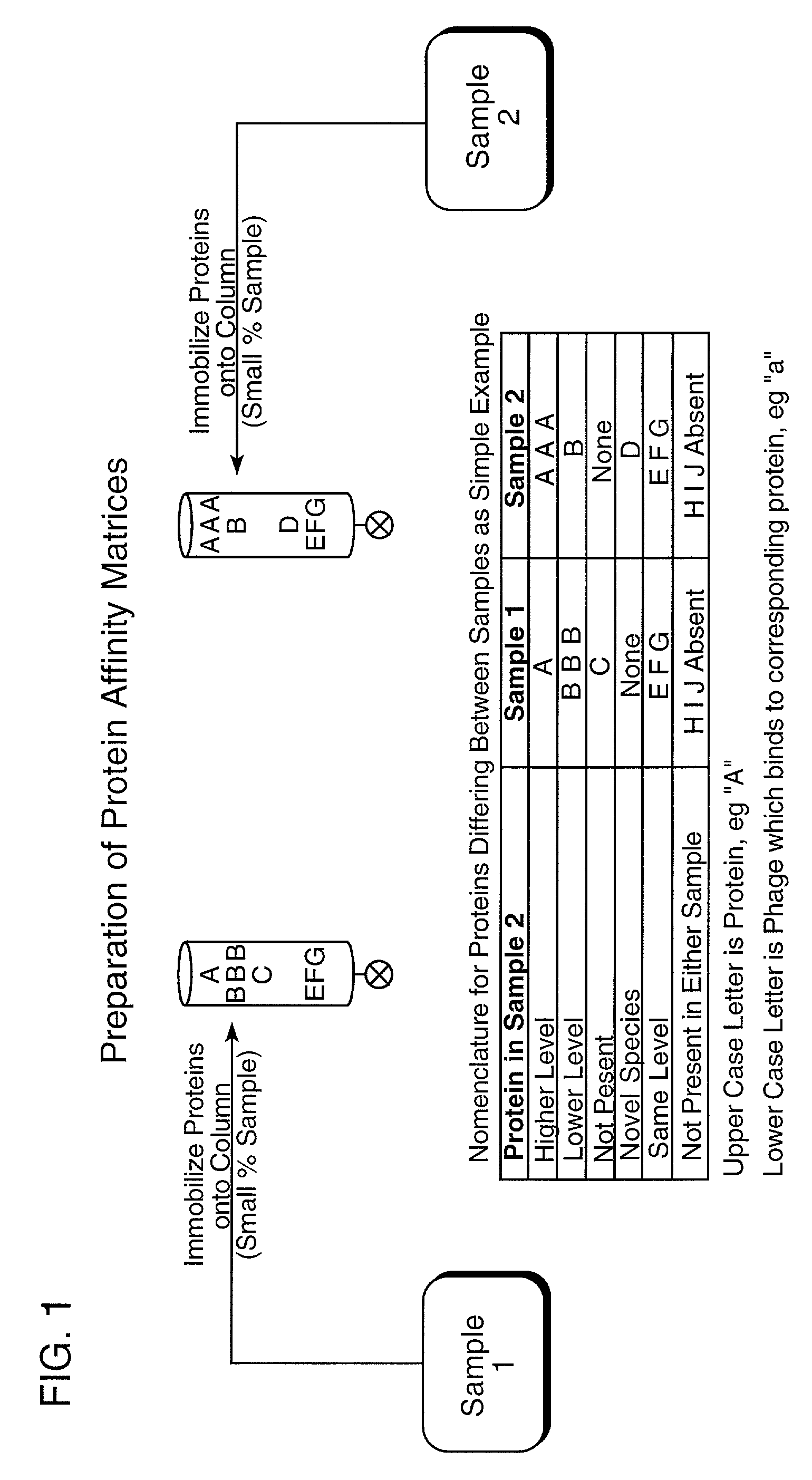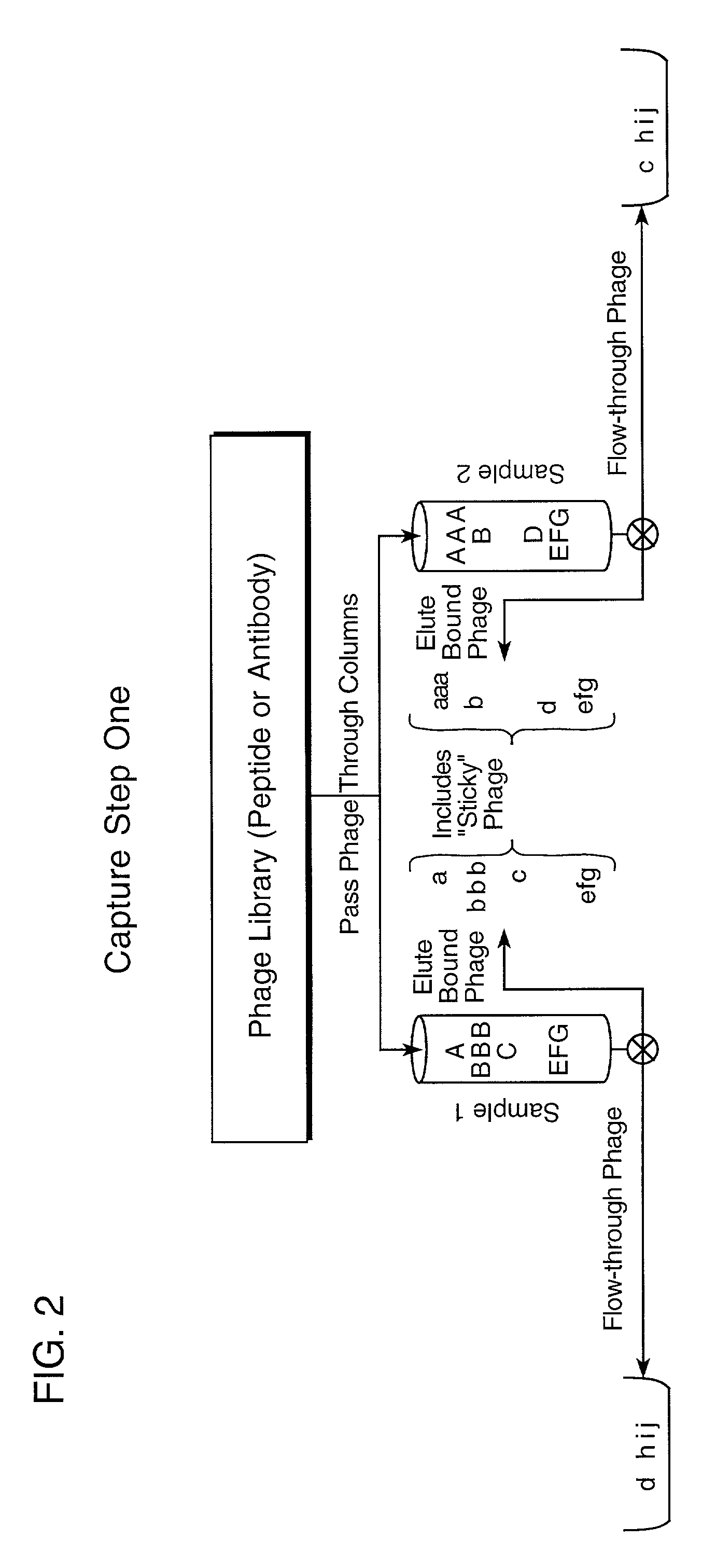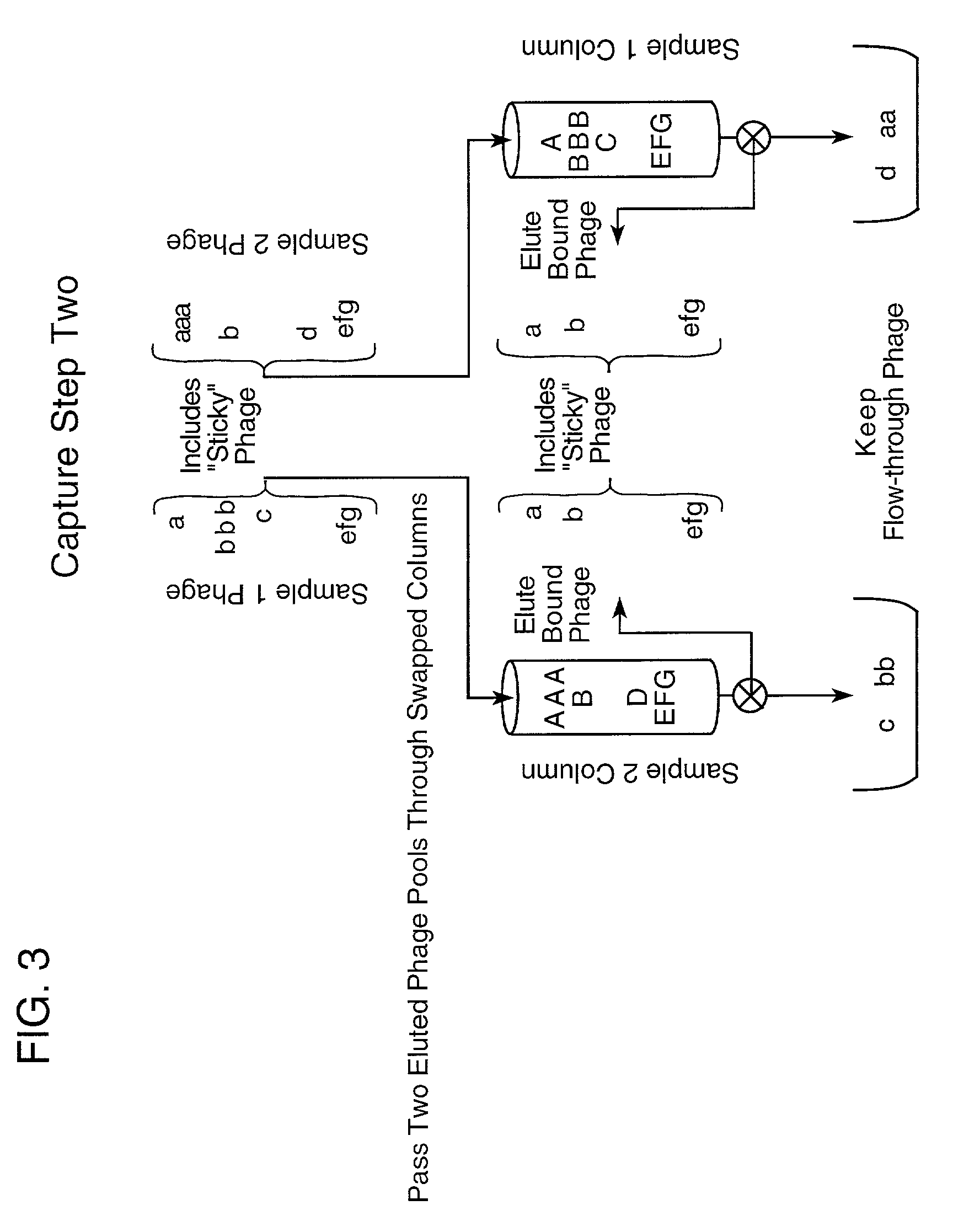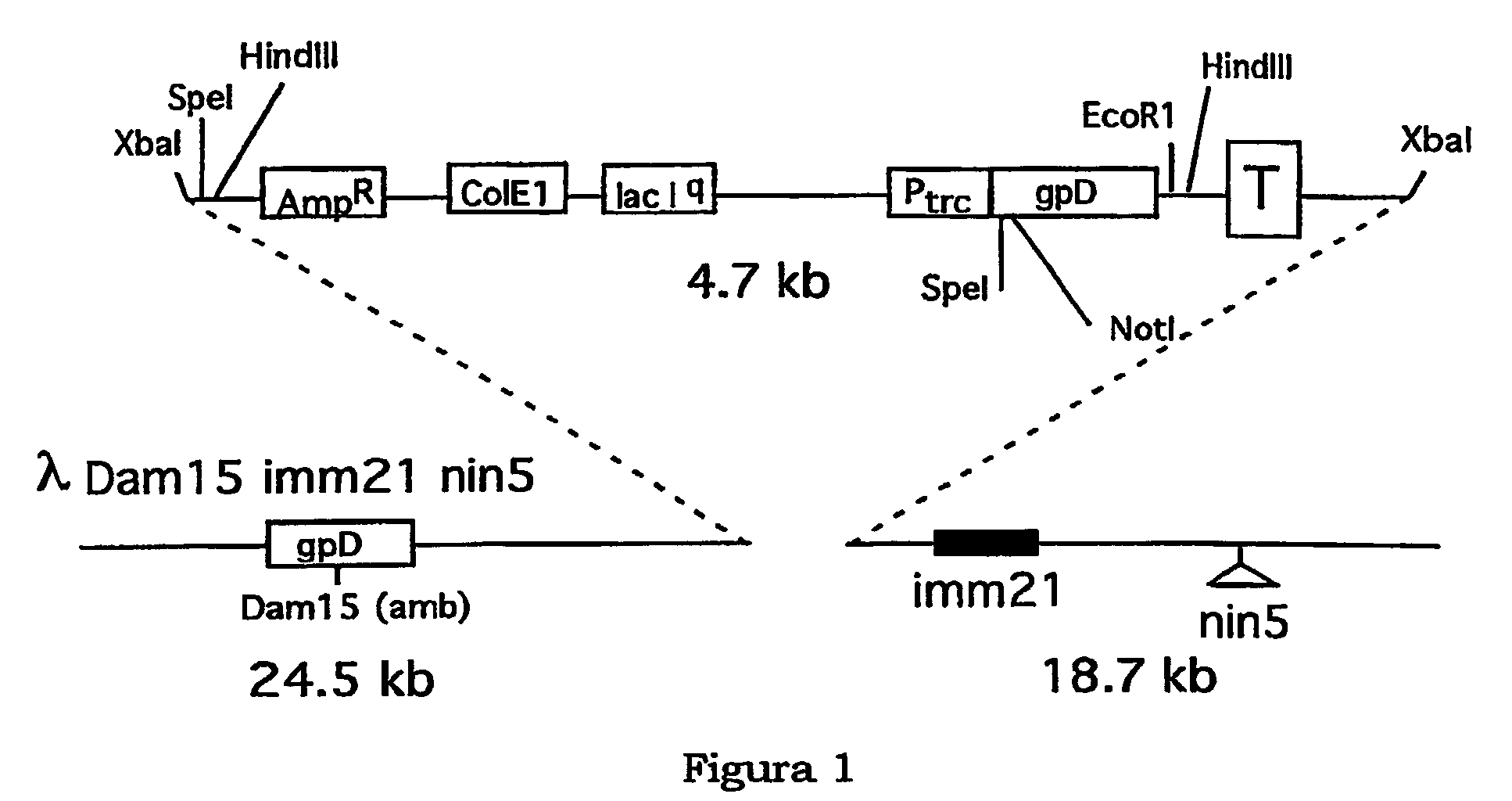Patents
Literature
121 results about "Phage Display Techniques" patented technology
Efficacy Topic
Property
Owner
Technical Advancement
Application Domain
Technology Topic
Technology Field Word
Patent Country/Region
Patent Type
Patent Status
Application Year
Inventor
Anti-VEGF antibodies
ActiveUS20070020267A1Inhibit bindingSenses disorderImmunoglobulins against growth factorsAnti vegf antibodyBacteriophage
Anti-VEGF antibodies and variants thereof, including those having high affinity for binding to VEGF, are disclosed. Also provided are methods of using phage display technology with naïve libraries to generate and select the anti-VEGF antibodies with desired binding and other biological activities. Further contemplated are uses of the antibodies in research, diagnostic and therapeutic applications.
Owner:GENENTECH INC
Anti-VEGF antibodies
ActiveUS7758859B2Senses disorderImmunoglobulins against growth factorsAnti vegf antibodyBacteriophage
Anti-VEGF antibodies and variants thereof, including those having high affinity for binding to VEGF, are disclosed. Also provided are methods of using phage display technology with naïve libraries to generate and select the anti-VEGF antibodies with desired binding and other biological activities. Further contemplated are uses of the antibodies in research, diagnostic and therapeutic applications.
Owner:GENENTECH INC
Neutralizing antibody for resisting novel coronavirus SARS-Cov-2 and application thereof
ActiveCN111592595ABlock bindingGood effectImmunoglobulins against virusesAntiviralsNeutralizing antibodyPhage Display Techniques
The invention relates to a neutralizing antibody for resisting a novel coronavirus SARS-Cov-2 and an application of the neutralizing antibody. The antibody at least comprises one of a heavy chain CDR1, a heavy chain CDR2, a heavy chain CDR3, a light chain CDR1, a light chain CDR2 and a light chain CDR3. The antibody can be used for preparing a diagnostic reagent or a diagnostic kit, a drug or a pharmaceutical composition for detecting, preventing and treating a COVID-19. According to the neutralizing antibody, differential antibody screening is carried out through a phage display technology ina manner of targeting SARS-Cov-2-RBD and SARS-Cov-1-RBD; the neutralizing antibody for resisting the novel coronavirus SARS-Cov-2 is obtained; binding of the SARS-Cov-2-RBD and ACE2 positive cells can be blocked; and the neutralizing antibody has a remarkable virus neutralizing effect on an SARS-Cov-2 pseudo virus and provides an effective alternative antibody drug for prevention and treatment ofthe COVID-19.
Owner:NANJING MEDICAL UNIV
Trimerising module
The present invention relates to the design of trimeric polypeptides using polypeptide structural elements derived from the tetranectin protein family, and their use in rational de novo design and production of multi-functional molecules including the application of the multi-functional molecules in protein library technology, such as phage display technology, diagnostic and therapeutic systems, such as human gene therapy and imaging. The trimeric polypeptides being constructed as a monomer polypeptide construct comprising at least one tetranectin trimerising structural element (TTSE) which is covalently linked to at least one heterologous moiety, said TTSE being capable of forming a stable complex with two other TTSEs; or as an oligomer which is comprised of two monomer polypeptide constructs as mentioned above, and which comprises three TTSEs or a multiplum of three TTSEs, or which is comprised of three monomer polypeptide constructs.
Owner:ANAPHORE INC +1
Tumor-targeted diagnosis nuclear magnetic resonance contrast agent and preparation method thereof
InactiveCN102397564AImprove intake efficiencyImprove diagnostic efficiencyIn-vivo testing preparationsTumor targetingPolyethylene glycol
The invention belongs to the technical field of biotechnology, and relates to a tumor-targeted diagnosis nuclear magnetic resonance contrast agent and a preparation method thereof. The tumor-target diagnosis nuclear magnetic resonance contrast agent is prepared from a high molecular material, polyethylene glycol, a polypeptide, a dual-function ligand and gadolinium chloride by taking the polypeptide as a target head group, taking the tree-like high polymer material as a basic high molecular vector and connecting a small molecular contrast agent to the surface. In the invention, a polypeptide-modified high molecular material screened by using a phage display technology enters cells in an endocytic way, so that the introjection of the contrast agent by tumor cells is increased, and the characteristic of high safety is achieved. The target head group polypeptide used in the invention has the advantages of transferrin, can be used for effectively avoiding the interference of endogenous transferrin, has high targeting and diagnosing efficiencies, is simple to prepare, and can be further applied to target diagnosis of other tumor tissues.
Owner:FUDAN UNIV
Novel coronavirus SARS-Cov-2 resistant neutralizing single-domain antibody and application thereof
ActiveCN111647076AGood effectEffective Alternative Antibody DrugsBiological material analysisImmunoglobulins against virusesSingle-domain antibodyPhage Display Techniques
The invention relates to a novel coronavirus SARS-Cov-2 resistant neutralizing single-domain antibody and application thereof. The antibody at least has one of heavy chain CDR1, heavy chain CDR2 and heavy chain CDR3, and can be used for preparing diagnostic reagent or diagnostic kit, an antibody medicine or medicinal composition against COVID-19. The novel coronavirus SARS-Cov-2 resistant neutralizing single-domain antibody is obtained through a phage display technology, can stop combination of the SARS-Cov-2-RBD and ACE2 positive cells, has a remarkable virus neutralizing effect on SARS-Cov-2pseudovirion, and provides an efficient backup antibody medicine for COVID-19 prevention and treatment.
Owner:NANJING MEDICAL UNIV
Anti-VEGF antibodies
Anti-VEGF antibodies and variants thereof, including those having high affinity for binding to VEGF, are disclosed. Also provided are methods of using phage display technology with naive libraries to generate and select the anti-VEGF antibodies with desired binding and other biological activities. Further contemplated are uses of the antibodies in research, diagnostic and therapeutic applications.
Owner:GENENTECH INC
New cartilaginous affinity polypeptide sequence, screening method and application thereof
ActiveCN101891803AImprove targetingImprove practicalityGenetic material ingredientsSkeletal disorderDiseasePolyphage
The invention discloses a new cartilaginous affinity polypeptide sequence and a screening method thereof. In the invention, according to an improved phage display technique, a cell and tissue layers combined extracorporeal screening method is applied to cartilaginous affinity polypeptide screening for the first time so as to screen out the polypeptide sequence DWRVIIPPRPSA with chondrocyte affinity and tissue specificity, and thus, the drawback of simple cell screening or tissue screening in the prior art is overcome, and the cellular affinity and the tissue specificity are well combined. The invention also relates to the application of the polypeptide in the preparation of a targeted PEI nano-carrier for the gene therapy of mediated articular cartilage diseases, which realize the decoration on the PEI carrier by the cartilaginous affinity polypeptide, offers the cartilaginous tissue specificity and the cellular affinity to the carrier, and realizes the targeted therapy to the cartilage. In addition, the invention takes the chondrocyte itself as the screening target, which has better targeted effect and clinical practical value compared with the mode of taking the matrixes around the chondrocyte as the screening target in the prior art.
Owner:PEKING UNIV THIRD HOSPITAL
Encoding gene of green fluorescent protein nano antibody and preparation method and application of encoding gene
ActiveCN108753792AImprove featuresHigh affinityBacteriaImmunoglobulins against animals/humansGreen fluorescent proteinNucleotide
The invention relates to four green fluorescent protein (GFP) nano antibody encoding genes as well as a preparation method and application thereof. The invention establishes a GFP nano antibody library. By using a phage display technique, four nano antibodies which are specifically combined with the GFP are screened from the antibody library, which are respectively named as A12, E6, D5 and B9. Nucleotide sequences of the four nano antibodies are obtained through sequencing, the nucleotide sequences are as shown in SEQ ID NO:1. SEQ ID NO:2, SEQ ID NO:3 and SEQ ID NO:4, and the nucleotide sequences have corresponding amino acid sequences as shown in SEQ ID NO:5, SEQ ID NO:6, SEQ ID NO:7 and SEQ ID NO:8. A gene A12 is cloned to a transformed expression vector pADL-10b-His, and introduced intoan SS320 strain; genes E6, D5 and B9 are respectively cloned to transformed expression vectors pBAD 24-Flag-His, and are respectively introduced into a TOP10 strain, and then four prokaryotic expression vectors and strains of four nano antibodies are obtained. Four nano antibodies are expressed and purified, tests show that the four GFP nano antibodies can be specifically combined with GFP, and the genes can be applied to detection on GFP in basic research.
Owner:SUN YAT SEN UNIV
Tumor-targeting double-drug carrying and delivery system and preparation method thereof
InactiveCN102397554APlay synergistic effectImprove intake efficiencyOrganic active ingredientsMacromolecular non-active ingredientsTumor targetingPolyethylene glycol
The invention belongs to the field of biotechnology, and specifically, relates to a tumor-targeting double-drug carrying and delivery system and a preparation method thereof. The tumor-targeting double-drug carrying and delivery system adopts high-molecular materials, polyethylene glycol, a polypeptide, a treatment gene and a chemotherapeutic drug, wherein the polypeptide is utilized as a targeting head and the high-molecular materials are utilized as base high-molecular carriers. The preparation method comprises that the chemotherapeutic drug of adriamycin and the like are inserted into double chains of the treatment gene to form a gene-chemotherapeutic drug compound; and through electrostatic interaction between the gene chemotherapeutic compound and the base high-molecular carriers, the tumor-targeting double-drug carrying and delivery system which simultaneously carries the treatment gene and the chemotherapeutic drug is obtained. The high-molecular materials are novel polypeptide-modified high-molecular materials, are selected by a phage display technology, and can enter into cells by endocytosis, and thus the gene and chemotherapeutic drug intake capability of tumor cells are improved and safety is improved. The polypeptide (T7) as the targeting head has advantages belonging to transferrin, can effectively avoid interferences from endogenous transferrin, has high targeting and treatment efficiency, is easy for preparation, and can be further developed and be utilized for targeting treatment on other tumor tissue.
Owner:FUDAN UNIV
O-type foot and mouth disease virus antigen epitope molecular mimic peptide and application thereof
InactiveCN101597327AAntigenicNon-toxicAntiviralsPeptidesVirulent characteristicsMolecular Immunology
The invention relates to the molecular immunology field. Although the existing foot-and-mouth disease weak poison vaccines and inactivated vaccines and other routine vaccines have good immunogenicity, but the vaccines have some unsafe factors such as reversion of virulence, incomplete virus blanching, the escape of live-virus from a preparation factory and the like so that people are motivated to find a more safe and effective FMD vaccine. In the molecular mimic peptide invention, phage display techniques are used to sieve effective FMDV epitopes to provide an O-type foot and mouth disease virus antigen epitope molecular mimic peptide and the invention also provides an application thereof in preparing immunogen and swine foot-and-mouth disease epitope peptide vaccine. The FMDV epitope peptide vaccine using the molecular mimic peptide of the invention has the antigenicity of target molecule without toxicity, is very safe and has low mass production cost and good economic effect and social effect.
Owner:SECOND MILITARY MEDICAL UNIV OF THE PEOPLES LIBERATION ARMY
Anti-human MSLN (mesothelin) monoclonal antibody
ActiveCN110698562AGood water solubilityImprove patienceImmunoglobulins against cell receptors/antigens/surface-determinantsAntibody ingredientsAntiendomysial antibodiesPharmaceutical drug
The invention discloses an anti-human MSLN (mesothelin) monoclonal antibody, which is a specific high-affinity nano antibody developed by taking human MSLN as a target and based on a phage display technology. Compared with the prior art, the invention allows the anti-human MSLN monoclonal antibody to be successfully prepared, which is good in specificity, high in affinity and capable of binding tohuman MSLN expressed on the cell surface, and the anti-human MSLN monoclonal antibody is a potential drug for tumor immunotherapy.
Owner:ZHEJIANG BLUE SHIELD PHARM CO LTD
Nanobody capable of resisting H9N2 subtype avian influenza viruses, preparation method and application
ActiveCN111171146AHigh sensitivityShort timeImmunoglobulins against virusesNucleic acid vectorCamelus bactrianusHorse radish peroxidase
The invention discloses a nanobody capable of resisting H9N2 subtype avian influenza viruses, a preparation method and an application. The amino acid sequence of the nanobody is as shown in SEQID NO:1. The nucleocapsid protein of the H9N2 subtype avian influenza viruses is expressed through a prokaryotic expression technique, then the nucleocapsid protein is used as an immunogen for immunizing Bactrian camels, a phage library is constructed, then a nanobody capable of resisting H9N2 nucleocapsid protein is obtained through screening by a phage display technique, then the nanobody and horse radish peroxidase (HRP) are subjected to fusion expression, and a fusion protein of the nanobody and the HRP is successfully prepared. When the fusion protein is applied to detection of antibodies capable of resisting H9N2 subtype avian influenza viruses (AIV) in chicken serum, the inventor finds that a detection method constructed through the fusion protein is high in sensitivity, and has the advantages that the operation is simple, secondary antibodies do not need to be used, and time consumed for detecting samples is short.
Owner:NORTHWEST A & F UNIV
Cocaine-and amphetamine-regulated transcript peptides single-chain antibody and application thereof
InactiveCN101280016AReverse behavioral sensitizationNervous disorderAntibody ingredientsSingle-Chain AntibodiesPsychoactive substance
Disclosed is a new antibody which can be used to relieve addiction caused by nerve active substances, including opium, cocaine, benzedrine, ketamine, etc. Cocain and amphetamine-regulated transcript peptide antibody gene is selected through phage display technology; then single-chain antibody sequence of the cocain and amphetamine-regulated transcript peptide(CART) and the procaryon expression vector are connected and are induced to express and to be purified to obtain single-chain antibody in response to CART, which is named as CARTscFv(AH1,AH4B,AH6,AH19,AH33B,AH36). Injecteion of CARTscFv into the abdominal cavity of a mouse, together with the CART at the peripheral circulation system, leads to the reduction of the CART in the central nervous system of the mouse. Animal model with behavioral sensitization induced by cocain proves that the CART single-chain antibody can restrain the expression of the behavioral sensitization of the mouse induced by cacain, which shows that the CART single-chain antibody is of great potential in curing addiction and particularly relapse caused by nerve active.
Owner:SECOND MILITARY MEDICAL UNIV OF THE PEOPLES LIBERATION ARMY
Neutralizing single-domain antibody with function of resisting novel coronavirus SARS-Cov-2 and application of neutralizing single-domain antibody
ActiveCN112062838ABiological material analysisImmunoglobulins against virusesSingle-domain antibodyNeutralizing antibody
The invention relates to a neutralizing single-domain antibody with a function of resisting novel coronavirus SARSCov2 and application of the neutralizing single-domain antibody. The antibody has at least one of a heavy chain CDR1, a heavy chain CDR2 and a heavy chain CDR3. The antibody can be used for preparing a diagnostic reagent or a diagnostic kit, an antibody medicine or a medicinal composition against COVID-19. An SARS-CoV-2 specific human monoclonal single-domain antibody is obtained by a phage display technology, has an SARS-CoV-2 pseudo-virus neutralizing effect, and has a synergistic neutralizing effect on D614G mutant strain pseudovirus when being combined with an IgG type SARS-CoV-2 neutralizing antibody 4A3 for use. Therefore, the antibody provides an efficient alternative antibody medicine for prevention and treatment of COVID-19.
Owner:NANJING MEDICAL UNIV
HPV16E7 protein nano-antibody as well as preparation method and application thereof
ActiveCN106397582AQuality improvementBiological material analysisImmunoglobulins against virusesEscherichia coliAntigen
The invention discloses an HPV16E7 protein nano-antibody as well as a preparation method and application thereof. According to the preparation method, camels are immunized by virtue of an HPV16E7 antigen expressed in a prokaryotic manner so as to obtain a high-quality immune nano-antibody gene pool; and an enzyme label plate is coated with HPV16E7 proteins, the immune nano-antibody gene pool is screened by virtue of a phage display technique to obtain nano-antibody genes with the HPV16E7 specificity, and then the nano-antibody genes are transferred to escherichia coli, so as to establish nano-antibody strains capable of realizing high-efficiency expression in the escherichia coli.
Owner:SOUTHEAST UNIV
Phage display technologies
ActiveUS7811973B2Microorganism librariesOther foreign material introduction processesCoat ProteinsPhage Display Techniques
The present invention provides novel technologies for producing and screening fusion proteins on the surface of filamentous phage. In particular, a single vector can be used for generating cell and phage libraries containing a given series of protein sequences fused to either one or other of two phage coat proteins. This approach simplifies and improves the efficiency of the subsequent phage display-based selection of protein-binding molecules having therapeutic or diagnostic utility, such as antibodies, peptides, or epitope-binding regions.
Owner:RIBOVAX BIOTECHNOLOGIES SA
Anti-TNFalpha fully human monoclonal antibodies and application thereof
Belonging to the technical field of antibody drugs, the invention provides anti-TNFalpha fully human monoclonal antibodies and application thereof. The antibodies are derived from human hybrid tumors and are obtained by cytotoxin functional test screening and affinity screening by phage display technology, and have excellent affinity and specificity to TNFalpha. In pharmacodynamic experiments of cell models, the antibodies can effectively neutralize NFalpha and the cytological effect generated thereby. In animal experiments, the antibodies also can effectively neutralize TNFalpha and inhibit the phenotype brought about by TNFalpha in animal models. The effect is not lower than or is better than Humira.
Owner:BEIJING ANBAOKANG BIO PHARMA CO LTD
Epitope of spring viraemia of carp
The invention relates to an antigenic epitope of spring viraemia of carp and belongs to the technical field of biology. According to the invention, by virtue of phage display technique, a positive clone is screened out by the use of spring viraemia of carp virus (SVCV) monoclonal antibody, a conserved sequence binding to the SVCV monoclonal antibody is found out, a clinical diagnosis reagent is prepared by the screened antigenic epitope, and spring viraemia of carp is prevented and treated by a small molecular antigen peptide as a vaccine. The gene sequence of the invention is SEQ ID NO:1. The phage display technique is utilized to screen the positive clone by SVCV monoclonal antibody and find out the conserved sequence which can bind to the monoclonal antibody with the ability of SVCV activity neutralization in a random peptide library. The site of the antigenic determinant is determined, and the relationship of its sequence, structure and function is analyzed. The study of inhibition effect to SVCV generated from the competitive binding of small peptide to SVCV receptor will have a huge application value for taking small molecular antigen peptide as vaccine in the future.
Owner:JILIN AGRICULTURAL UNIV
Goose-array type localized random mutation method and application thereof in monoclonal antibody molecular evolution technology
InactiveCN102051396AAchieve evolutionAvoid the difficult problem of complex PCRImmunoglobulinsFermentationRandom mutationMonoclonal antibody
The invention discloses a goose-array type localized random mutation method and an application thereof in the monoclonal antibody molecular evolution technology. The goose-array type localized random mutation method provided by the invention comprises the following steps: designing a goose-array type primer of a target sequence of random mutation polymerase chain reaction (PCR) amplification, synthesizing the primer, mixing, and performing overlapping PCR to obtain the amplified sequence with random mutation in a designated area. The goose-array type localized random mutation method provided by the invention can be used in the monoclonal antibody molecular evolution. The invention further combines the key amino acid (KA) scanning, the goose-array type localized random mutation method and the phage display technology to provide a monoclonal antibody molecular evolution method. The mutation method provided by the invention is used in molecular evolution and has high speed, high success rate and wide application range.
Owner:DANYANG ZHENGYUAN BIOTECH
Polypeptide specifically combined with benzothiostrobin antibodies and application thereof
The invention belongs to the technical field of biology and relates to polypeptide specifically combined with benzothiostrobin antibodies, including an application of the polypeptide to the detection of benzothiostrobin. According to the polypeptide, a phage display technique is adopted, and the benzothiostrobin antibodies which are purified by a protein A column are used for screening a phage display random octapeptide library for three rounds, so as to screen phage clones combined with the benzothiostrobin antibodies; a plurality of phage clones are selected at random for amplification and plasmid extraction, positive phage clones are selected by adopting a phage ELISA (enzyme-linked immuno sorbent assay) method, and the positive clones are sequenced, so as to obtain a polypeptide sequence. The invention further relates to the application of the phage display polypeptide to the detection of the benzothiostrobin. A phage enzyme-linked immunoassay method established by using the phage display polypeptide can be used for quickly, sensitively and conveniently detecting benzothiostrobin residues in the environment and agricultural products with low cost.
Owner:NANJING AGRICULTURAL UNIVERSITY
Tumor-targeting double-drug carrying and delivery system and preparation method thereof
InactiveCN102397554BPlay synergistic effectImprove intake efficiencyOrganic active ingredientsMacromolecular non-active ingredientsTumor targetingPolyethylene glycol
The invention belongs to the field of biotechnology, and specifically, relates to a tumor-targeting double-drug carrying and delivery system and a preparation method thereof. The tumor-targeting double-drug carrying and delivery system adopts high-molecular materials, polyethylene glycol, a polypeptide, a treatment gene and a chemotherapeutic drug, wherein the polypeptide is utilized as a targeting head and the high-molecular materials are utilized as base high-molecular carriers. The preparation method comprises that the chemotherapeutic drug of adriamycin and the like are inserted into double chains of the treatment gene to form a gene-chemotherapeutic drug compound; and through electrostatic interaction between the gene chemotherapeutic compound and the base high-molecular carriers, the tumor-targeting double-drug carrying and delivery system which simultaneously carries the treatment gene and the chemotherapeutic drug is obtained. The high-molecular materials are novel polypeptide-modified high-molecular materials, are selected by a phage display technology, and can enter into cells by endocytosis, and thus the gene and chemotherapeutic drug intake capability of tumor cells are improved and safety is improved. The polypeptide (T7) as the targeting head has advantages belonging to transferrin, can effectively avoid interferences from endogenous transferrin, has high targeting and treatment efficiency, is easy for preparation, and can be further developed and be utilized for targeting treatment on other tumor tissue.
Owner:FUDAN UNIV
Identification of specific tumour antigens by means of the selection of cdna libraries with sera and the use of said antigens in diagnostic imaging techniques
InactiveUS20050084857A1Compound screeningTumor rejection antigen precursorsCDNA libraryAbnormal tissue growth
A method is described for the identification of specific tumor antigens by means of the selection of cDNA display libraries by using sera, characterised in that said selection is accomplished with the phage display technique, and in particular said selection is accomplished by means of the SEREX technique (serological analysis of autologous tumor antigens through the expression of recombinant cDNA). The method according to the invention described herein advantageously combines the SEREX approach with the potency of the phage display technique defined above, at the same time avoiding the drawbacks characteristic of the SEREX technique. The so identified antigens are useful for the preparation of medicaments for the treatment of tumors.
Owner:KENTON
Anti-human MSLN monoclonal antibody and application thereof
ActiveCN111349165AReduce volumeStrong tissue penetrationImmunoglobulins against cell receptors/antigens/surface-determinantsAntibody ingredientsSingle-Chain AntibodiesAntiendomysial antibodies
The invention discloses an anti-human MSLN monoclonal antibody and an application thereof, and is a specific and high-affinity single-chain antibody developed by taking human MSLN as a target based ona phage display technology. Compared with the prior art, the anti-human MSLN monoclonal antibody is successfully prepared, the antibody is good in specificity and high in affinity and can be combinedwith human MSLN expressed on the surface of a cell, and the anti-human MSLN monoclonal antibody is a potential drug for tumor treatment.
Owner:NANJING BLUE SHIELD BIOTECH CO LTD
Specific binding peptide of polycaprolactone nanoparticles as well as screening method and application thereof
The invention provides a specific binding peptide of polycaprolactone nanoparticles as well as a screening method and an application thereof, and the screening method comprises the following steps: 1)preparing a polycaprolactone coating in a pore plate; 2) screening out two specific binding peptides by using the pore plate with the polycaprolactone coating prepared in the step 1) by adopting a phage display technology; and 3) verifying the two specific binding peptides obtained in the step 2) by adopting the polycaprolactone nanoparticles. According to the invention, two specific binding peptides of the polycaprolactone nanoparticles are obtained through screening; the polypeptide sequences of the specific binding peptide are DGSMLNRMRGFS and YALGRPSLQGPN respectively, the specific binding peptide can be coupled with biomolecules such as polypeptide and protein, and a new thought is expected to be provided for construction of an intelligent nano sensor in a complex environment.
Owner:EAST CHINA UNIV OF SCI & TECH
Anti-human IgE protein single-domain antibody and application thereof
ActiveCN111875706AStrong specificityDiversity guaranteedOther chemical processesAntibody ingredientsDiseaseImmunosorbents
The invention relates to the field of blood purification, in particular to an anti-human IgE protein single-domain antibody and an application thereof. The structural general formula of the amino acidsequence of the single-domain antibody is shown as MDVQLQESGG-X1-LSC-X2-GRFTIS-X3-GQTQVTVVSS, wherein X1 is an amino acid sequence containing 1-9 amino acids, X2 is an amino acid sequence containing1-43 amino acids, and X3 is an amino acid sequence containing 1-38 amino acids. According to the invention, the soluble single-domain antibody capable of being expressed by prokaryotic or eukaryotic is screened by a phage display technology, and the production cost is low. An immunoadsorbent synthesized after the obtained single-domain antibody is coupled to a solid-phase carrier is high in humanIgE adsorption capacity and good in specificity; and the non-specific adsorption to human IgG is relatively low. The anti-human IgE protein single-domain antibody provided by the invention provides anew c selection for treating allergic diseases.
Owner:GUANGZHOU KONCEN BIOSCI
Mesenchymal stem cell affinity peptide screening and use
This invention relates to biotechnology field of cell and polypeptide. The aim of this invention is screening a small peptide that can strongly combine with MSC, and using it to separate and purify MSC and using it as carrying agent to prepare targeted therapeutic agent. The stated binding peptide sequence of MSC is ringed seven peptide sequence that abundantly contains Ser, Thr, Asn, Lys. Finally this invention uses phage display technique to screen small peptide that can strongly combine with MSC in random libraries of ringed seven peptides by affinity screening with MSC. MSC can link to solid phase sustentaculum through small peptide screened by using this invention. It can be used for screening, separating and purifying MSC. It can be used to prepare tracer agent of MSC after linking with fluorescent tumor marker. It can be used as carrying agent of MSC and medicine to prepare praeparatum about targeted therapy.
Owner:FIELD OPERATION BLOOD TRANSFUSION INST OF PLA SCI ACAD OF MILITARY
Recombinant humanized anti-hepatitis B surface antigen (HBs Ag) Fab antibody and its preparaticon method
The present invention provides a recombinant humanized anti-hepatitis B surface antigen (HBsAg) Fab antibody as human hepatitis B surface antibody and its preparation method. The preparation method includes the following steps: utilizing phage display technique to obtain the gene of a humanized anti-HBsAg Fab fragment, making expression in prokaryotic expression system, on this basis utilizing PCK technique to amplifying the light-heavy chain gene of Fab, constructing it into the methyl alcohol yeast expression vector, using two-step process to convert yeast, constructing Fab engineering bacterium, secreting, expressing and producing Fab antbody fragment. The Fab antibody has strong HBsAG combination activity and antigen specificity, and the expression product of said gene has high application value in clinical therapy of hepatic disease.
Owner:余宙耀 +1
Differential phage capture proteomics
InactiveUS7208268B2Increase the number ofBioreactor/fermenter combinationsBiological substance pretreatmentsBacteriophageProteomics
Disclosed herein are methods for identifying, isolating and comparing proteins and other biomolecules differing between two complex biological samples using affinity chromatography and phage display techniques.
Owner:DIFFERENTIAL PROTEOMICS
Antigen fragments for the diagnosis of Toxoplasma gondii
InactiveUS7176286B2Peptide/protein ingredientsAntibody mimetics/scaffoldsGondii toxoplasmaBacteriophage
The invention described herein relates to a method for identifying antigen fragments of Toxoplasma gondii proteins, and their use as diagnostic and immunogenic agents. Said method is implemented by means of selection of DNA fragments libraries of the parasite with sera of subjects who have been infected, using the phage display technique, and is characterised in that it uses the expression / exposure vector λKM4. The method allows also to identify antigen fragments related to the time of the infection.
Owner:KENTON
Features
- R&D
- Intellectual Property
- Life Sciences
- Materials
- Tech Scout
Why Patsnap Eureka
- Unparalleled Data Quality
- Higher Quality Content
- 60% Fewer Hallucinations
Social media
Patsnap Eureka Blog
Learn More Browse by: Latest US Patents, China's latest patents, Technical Efficacy Thesaurus, Application Domain, Technology Topic, Popular Technical Reports.
© 2025 PatSnap. All rights reserved.Legal|Privacy policy|Modern Slavery Act Transparency Statement|Sitemap|About US| Contact US: help@patsnap.com
